|
At Humanities Amped, youth are working year round to amplify healing justice, radical imagination, and beloved community in their school and communities! This summer, we hosted a three week long summer program centered around this year's driving question "What does my community need?" Students were encouraged to think of a specific community they belonged to and an important need of that community, engaging in research to learn more. Combining their personal stories, research, and guidance from a teaching artist specializing in their chosen discipline, students then were able to create art pieces, such as songs, informational videos, poems, sculptures, and more, to represent their answer to the driving question. Teaching artists Celeste Payne (visual arts), Brittany Marshall (performing arts), and Ryan Murray & Andrew Kuo (musical arts), and Amped alumni volunteer, Taylen Roberts, worked with our student-artists to draft a plan and offer support in bringing their ideas for their art projects to life! "Heal the World/Heal Yourself" Mini-ConferenceMidway through the first two weeks of the summer program, students participated in a mini-conference. At the "Heal Yourself, Heal the World" mini-conference, students attended workshops on mindfulness, emotional awareness, and self-management strategies led by Wanda Kuo, Tonja Myles, and Emanuel Boo Milton. The day ended with a featured poetry set of both student and staff poets, followed by a poetry workshop and readback. Students and staff wrote about what they envision and imagine for our communities and our world. ARTS-BASED CIVIC ENGAGEMENT SHOWCASEThe big premiere has finally arrived! Community members, family, and friends were invited to witness the amazing work that the Amped youth worked on addressing needs of their communities! To end off the celebration, Ms. George led us in our closing, Family Table, where we sat together, ate pizza, reflected on the program, and praised one another! YALL Week featuring Tyler E. Brewster of Peer Connect!During the third and final week of our summer program, YALL (Youth Apprentice Leadership League) students participated in activities to imagine what leadership looks like on their campus and create a plan to showcase their leadership in and outside of the Amped space! Restorative Justice educator and practitioner Tyler E. Brewster of Peer Connect joined us during this week to help us explore the heart of restorative justice. In our time with Tyler we deepened our community connections, expanded our understanding of restorative justice, and reflected both on places where we are successfully using restorative justice practices as well as where we can continue to grow. The training provided students with new tools that can be utilized as they step into their new academic school year as leaders! About Amped Summer Studio one student shared, "This was one of the best experiences I've ever had. I've never had such a strong connection to a group of people." Another student shared, "Humanities Amped was like the hole in my life that was finally filled. I am a very anxious person. Humanities Amped encouraged communication in a way that was not at all forceful. This made me wanna talk to people, and surprisingly I made friends." At Humanities Amped, we believe that young people are problem solvers, not problems to be solved. When we give students space and permission to ask big questions about issues that matters to them inside of a supportive and uplifting community, they see themselves as the powerful change agents they are. We celebrate the work and learning of our young people this summer, and look forward to what's next! ● As we do every year, we are taking a shared hiatus from June 30th - July 27th.
Our team at Humanities Amped is invested in long-term, sustainable care. And we know that begins right where we are, in our own lives. Showing up for ourselves means being intentional about slowing down and resting. It’s how we re-ground ourselves and build our capacity to show up for the long run. It’s never an easy choice to care for ourselves. There is always so much to do, and for those of us whose work is caring for our community, we often feel like it is never enough. And yet we know that if we want to show up wholeheartedly, we must invest in our own restoration. We hope to come back to you filled with energy, insight, and imagination. You, dear ones, deserve nothing less than our best selves! See you in late July. :) Love, The Amped Team
0 Comments
What a beautiful time we spent together at our first Community Night at Broadmoor High School! On the evening of May 3rd, the students of Amped Studio Afterschool were joined by friends, family, and community members for a celebratory showcase of their work and accomplishments. The evening began with an awards ceremony to uplift members of the Amped community for their remarkable dedication and service. For her collaborative support of the Amplified ELA Classrooms project, BHS English teacher Mrs. Candita Sims was awarded the Susan Weinstein Greenhouse Award. Amped staff member and alum Tareil George was awarded the Bobby Thompson Humble Hero of Social Justice award. George’s heart for the students at Broadmoor is on full display in all her work, whether she’s leading culture keeping after school or facilitating poetry workshops in classrooms. Finally, the Kaiya Smith True Blue Senior Award went to Amped Studio student and YALL member Quynn Lewis. Quynn has demonstrated a deep love for the Amped community this year, which he pairs with a practical commitment to problem-solving. Quynn has been an integral member of YALL (the Youth Apprentice Leadership League), always willing to jump in to meet a need even when it means trying something new. Following the awards ceremony, the community night attendants chose between two youth-led civic engagement workshops: What is Consent? and Conflict Prevention and Resolution. The workshops were followed by presentations and interactive workshops led by students in the art-engagement groups. Students in the visual arts group, who worked with teaching artist Celeste Payne, showed off their drawing and digital design work. Jamal Smith led a drawing workshop in which participants practiced drawing a human face. Students in the music group, led by Ryan Murray, showcased songs they had written and performed and hosted a jam session. Students in the performance group, led by Anna Campbell, reflected on their experience working on a student-drafted play during the semester. They also presented an improv performance in the courtyard. In true Amped fashion, the evening ended in reflection. Students shared gratitude for each other and for those who gathered to celebrate their work. Amped supporter Boo Milton reflected on Amped’s history, saying that what was once only a dream has become a reality. “I feel like I’m in the future,” he said. “I’m inside the dream.” Thank you for living this dream with us! We are so thankful for our dedicated partners at Broadmoor High School, EBRPSS, and throughout the community. Our work with students at Broadmoor High School is only possible because of your support. As we close out this school year, we are looking ahead with gratefulness and joyful anticipation for what’s next.
Ashanta now serves as one of our Alumni Program Leaders who works in our classrooms and the after school Amped Studio, assisting current students reach their goals through the culture and teachings of the program. Ashanta accredits the Amped program as she believes it is a primary factor that inspired her to start a community service organization, Filled with Love Project, that is devoted to connecting and providing assistance to the community, and has motivated her to work with many organizations geared towards the upward development of the youth community in Baton Rouge. She thanks the program for all it has done and for giving her and all of her peers the tools needed to grow beyond high school. In addition to working as an Amped Alumni Program Leader, Ashanta now studies History at Southern University and A&M College. What do you most enjoy about your role at Humanities Amped, and what are you looking forward to? I am constantly looking forward to seeing myself in youth that I come across and giving them the exact encouragement I craved when I was in their shoes. The ability to be able to be there and lift them up during their personal, professional, and academic endeavors is what brings me the most joy in my role at Humanities Amped. Why does the mission of Humanities Amped matter to you?
The mission of Humanities Amped is so valuable to me as it highlights the main things that I recognize that youth are hindered from in “normal” spaces in society. After experiencing this mission as a student of the program, I realize how much of a powerful impact it has on a growing child as it grants experiences that youth may have never witnessed. This empowers students to welcome and accept that radical imagination, beloved community, and healing justice are things that are possible even beyond the walls of Humanities Amped. At Humanities Amped, our work to amplify healing justice, radical imagination, and beloved community in public schools and youth organizations is only possible because of your support. You, dear Amped family, are bringing transformative possibilities to life for students in the East Baton Rouge Parish Public School System. Because of your support, we are amplifying an ecosystem of hope at Broadmoor High School. As of this school year,
A recent survey of youth in Amped Studio Afterschool shows that 96% feel very supported by the adults in Humanities Amped, and 90% strongly agree that if they have a problem they can go to Humanities Amped for support. When asked what three words they would use to describe Humanities Amped, our students offered inclusive, welcoming, warm, fun, and safe, among other equally powerful descriptors. One student shared with us, “I’ve gotten a lot better at expressing what I feel and not being afraid to ask for help.” Another said that at Amped Studio, “It feels like I'm actually being heard.”
Amped family, thank you for pouring into the youth of Baton Rouge. We are proud to be in this work with you. This week of the #AmplifyHope drive we're celebrating beloved community. Did you follow our beloved community think piece series last year? You can find the whole collection here! This year, we need your help to spread the word! If you believe in the mission of Amped, we hope you'll help us tell our story. Check out this video about how we center the value of beloved community, and send it on to someone you think should know about us!
We invite you to amplify hope with us by donating at the link below, and by helping us promote this video on social media! Every like, comment, and share helps us expand our reach, so let's #AmplifyHope together! The Amplify Hope Campaign, our yearly fundraising drive, begins today! Our work to empower public school communities and youth organizations to cultivate healing justice, radical imagination, and beloved community is only possible because of our family of supporters. This year, we need your help to spread the word! If you believe in the mission of Amped, we hope you'll help us tell our story. Check out this video about how we center the value of radical imagination, and send it on to someone you think should know about us! We invite you to amplify hope with us by donating at the link below, and by helping us promote this video on social media! Every like, comment, and share helps us expand our reach, so let's #AmplifyHope together!
Amped family, we are so pleased to formally introduce you to our two newest program managers: Mr. Zach Williams and Dr. Reva Hines. Both Zach and Reva add incredible value to our team, and we are proud to celebrate them with you!
What do you most enjoy about your role at Humanities Amped, and what are you looking forward to? My role at Humanities Amped allows me to work collaboratively with other educators who are passionate about youth development beyond just academics. I love working with young adults in these critical moments of their socialization, and Humanities Amped allows me to address the whole human that walks into our doors. Our young people are expressive, talented, and intelligent but do not always get to showcase all three aspects. I love that we provide a space for that and that they are developing a loving community with our guidance. Why does the mission of Humanities Amped matter to you? The Humanities Amped mission matters to me because the public school system does not always have the resources or capacity to foster the aspects of healing justice, radical imagination, or beloved community. The unfortunate reality is that many students do not feel as though they are truly part of the community they engage with on a daily basis, let alone having the power to heal what ails the community or that they have the power to create a new reality for that community. Since our focus is not individual academics and competition for opportunity, our students can become more well rounded as community leaders who have the capacity to claim their humanity and humanize others.
What do you most enjoy about your role at Humanities Amped, and what are you looking forward to? I enjoy being a part of Humanities Amped's learning community which offers a safe and brave space for our youth to be their authentic self all while accentuating their academic, personal, and social-emotional skills through healing and restorative practices. I am looking forward to cultivating and sustaining practices that build our youth to be the next generation of change leaders in our communities. Why does the mission of Humanities Amped matter to you? It is important for the youth to have a platform to grow. That's why Humanities Amped matters to me. It allows for just that to happen. You can catch Zach and Reva facilitating Transform Yourself Studio on Mondays and Wednesdays after school, conferencing with students who need support throughout the day, or offering guidance to students in Dreamkeepers as they navigate their options for after high school. Are you looking to support Amped financially? Head to our support page to donate today! We cannot do this work without you. Are you looking to get involved with Amped? Our call for volunteers is still open!
Amplifying ELA Classrooms is a project that will take place during the Spring 2022 semester at Broadmoor High School and specifically focuses on supporting the English Language Learners who make up 21% of the Broadmoor community. Volunteers will be matched with a Broadmoor teacher and work with them in their classroom throughout the semester on a weekly basis. You do not need special training to join this initiative, but you do need commitment, a heart for youth, and at least three hours a week that you can volunteer at a consistent time. Sign up by following the link below! If you have questions, please reach out to [email protected]. Amped Studio Afterschool at Broadmoor High School kicked off at the end of September with a lot of love and excitement in the air. On Mondays and Wednesdays students gather after school for Transform Yourself Studio, a supportive community that gives students space to set goals and provides them with the homework help, social emotional skills, and tutoring support they need to reach those goals. At Transform The World Studio, on Tuesdays and Thursdays, students are invited to apply their talents and gifts to be the change they want to see in the world. Enrollment filled up quickly, and after just a few weeks of programming we are already seeing the impact of careful attention to building beloved community together. Our first few weeks were focused on establishing a culture that is driven by young people: students created agreements that align to our core Amped values and reflect how they want to treat each other, and be treated, in Amped Studio. A student "culture keeper" reviews those agreements at the start of every session. This commitment to honoring the norms we set together is one way that students are claiming Amped Studio as a space for themselves to practice beloved community, healing justice, and radical imagination not as lofty ideals, but as everyday ways of being together that change the world. Students in Transform Yourself Studio engaged in an exercise to set visions for the lives they most want to live in the future. They then created goals for how they want to use their time in tutoring studios on Mondays and Wednesdays to help them achieve their vision. After the first time breaking into tutoring studios, one student shared in our closing reflection that she now feels "hungry" for the science test that had previously felt like a chore. By aligning student-driven goals with a supportive environment to reach those goals, we hope to amplify hope across campus. One day at a time, Broadmoor High students are experiencing real paths to achieving their dreams. One afternoon in Transform the World Studio we asked, "What does your own creative studio space look like?" Students wrote poems and drew pictures, made collages, and opened up to a deeper conversation about what it feels like to be in a space where you can truly express yourself. After a group conversation about pronouns and gender identity grew from the group's dialogue, one youth asked Dr. West, "Where were you all last year? I've really needed this." We are so grateful to be grounded this year at Broadmoor High School where we're able to build this beloved core of youth leaders who will contribute—and are already contributing—so much to our world. Amped Studio is amplifying our own hope for the future of our work as we imagine possibilities for the rest of this school year and beyond. Big dreams and visions are welcome at Amped Studio, and we can’t wait to see them bloom! If you would like to make a contribution to Humanities Amped, please follow the donate button below. This work is not possible without you!
Amped family, we are thrilled to introduce to you the newest member of the Amped team, Dr. Leslie T. Grover! Dr. Grover brings to her work as Program Director two decades of experience in youth programming, indigenous research, social justice organizing, curriculum development, and community engagement. She is an avid social justice scholar and has published extensively in the fields of race equity, health equity, and community engagement. In 2016 she was appointed as an Interdisciplinary Research Leader with the Robert Wood Johnson Foundation as well as community outreach specialist for U.S.-Cuban relations. She is also a creative writer, and her first novel debuts in Fall 2022.
Dr. Grover's enthusiasm for the work is contagious, and we are so grateful for the expertise and compassion she carries. As Program Director Dr. Grover will plan and implement initiatives like Community Care to provide social and emotional learning and restorative supports, as well as dynamic leadership opportunities, to the students we serve. The start of each new school year is always a busy time for us, and 2021 has certainly been no exception. The East Baton Rouge Public School System’s new social and emotional learning initiative fits so well with Amped’s commitments to healing centered and culturally responsive learning, that they’ve asked us to create a social and emotional learning community lab school. Humanities Amped is excited to share with you that we are now in residence at Broadmoor Senior High School! As you know, our work can only thrive in community, and this move to a single school site means that we will be able to work deeply with students, teachers, administrators, and families, as well as EBRPSS, to realize the vision of a community lab school for social and emotional learning. Over the last month we have engaged with faculty and staff to begin drafting a vision for what we’re calling Broadmoor’s radical imagination of what education can and should be, and we look forward to the start of Amped Studio Afterschool in which we invite students to to transform the world, through project-based action research, and to transform themselves, through tutoring and supports. We have also been hard at work making our space in the Broadmoor Galley warm and welcoming. We are enthusiastic about the district’s and Broadmoor’s commitment to social-emotional learning and look forward to building with our new Broadmoor family! If you would like to support the mission of Humanities Amped by giving, we invite you to follow the link below. Your contributions will help us to continue to transform our space on Broadmoor's campus and develop our programming. What's New at Humanities AmpedWe’re hiring for two positions: Program Manager (full-time) and Program Leader (part-time, Amped Alumni preferred). Send your cover letter and resume to [email protected] by September 17 to apply.
Starting in March of 2021, Humanities Amped has released a series of think pieces celebrating the first of our three core values: beloved community. As we head into the bustle and promise of this new school year, we are excited to share the last installment in the Beloved Community series with you.
TOGETHERNESS IS CHANGE WITHIN A BELOVED COMMUNITYTareil La'Kisha GeorgeWe sometimes forget the most important thing about being human is change. We have the ability to change whatever we want, but we seem to forget the importance of relationships, patience, and vision. One thing that I observe about us as humans is that we adapt. We learn adaptation from our environment. Adaptation isn’t a bad thing; for example, the poisonous Primrose has made a special adaptation so it could survive in desert-like areas. Humans are like the Primrose. We adapt to live, but why don’t we normalize changing the world, so we don't have to depend on adaptation to Survive?
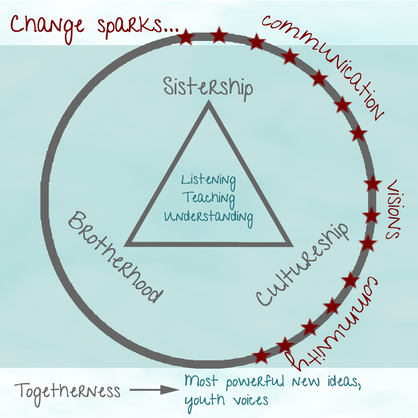 In Amped, we often have our students create their own Norms, which give them the opportunity to set up their own rules to live by within the classroom. One Norm that students often request is ‘Active Listening’. Active listening is the biggest part of the listening and understanding skill. If you are actively listening, you are opening your mind to be more understanding of what’s going on in the space. As part of teaching, once you understand, the next moving part is to now focus on transforming what you have learned or relearned onto the next, but how and to who? This is where teaching and those three relationships start to develop. We have to see teaching as a way of better communication that recognizes students as unique individuals. We are taught that we should use what we have learned in the future, but learners may miss what is being taught based on how it is given. For example, you wouldn't teach a four year old the same way you teach a fourteen year old. You must have the balance between patience and understanding of their differences in order for them both to understand what is being taught. This also plays a role in relationship building. Without a relationship with those you are teaching, you would have a hard time being heard and understood. Being the listener of the youth, which can change the direction of better communication within the community, forms a relationship of understanding which can propel the sense of a Beloved community.
|
|
Contact Us |
Mailing Address7350 Jefferson Hwy
Ste. 485 PMB 130 Baton Rouge, LA 70806 |
© 2024 Humanities Amped
Humanities Amped is a 501(c)(3) nonprofit organization
Humanities Amped is a 501(c)(3) nonprofit organization
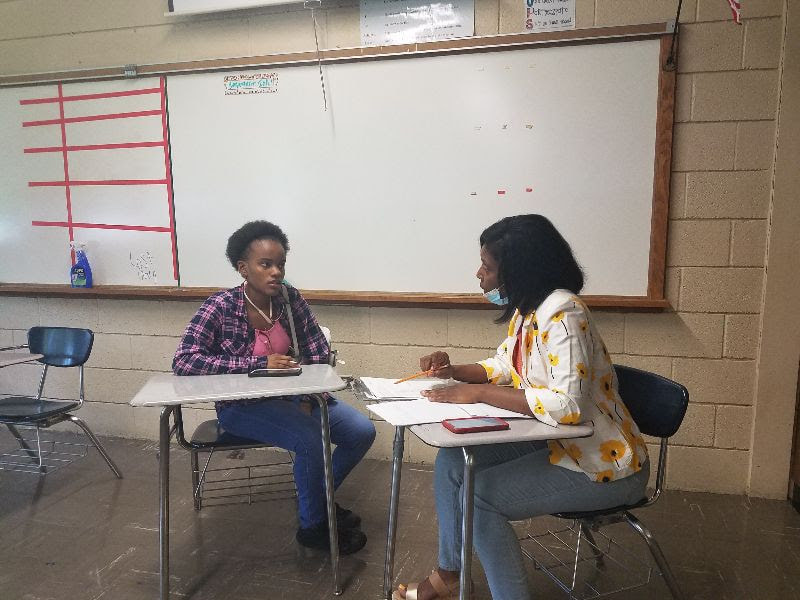
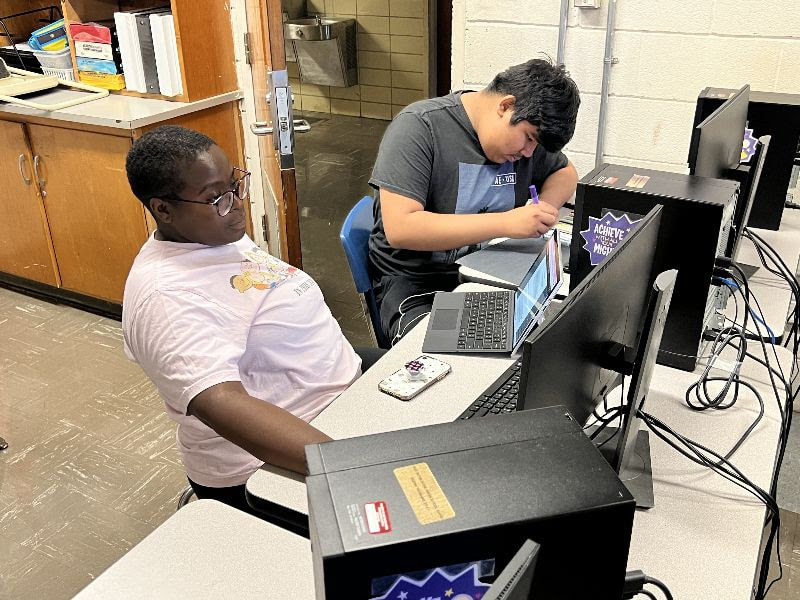
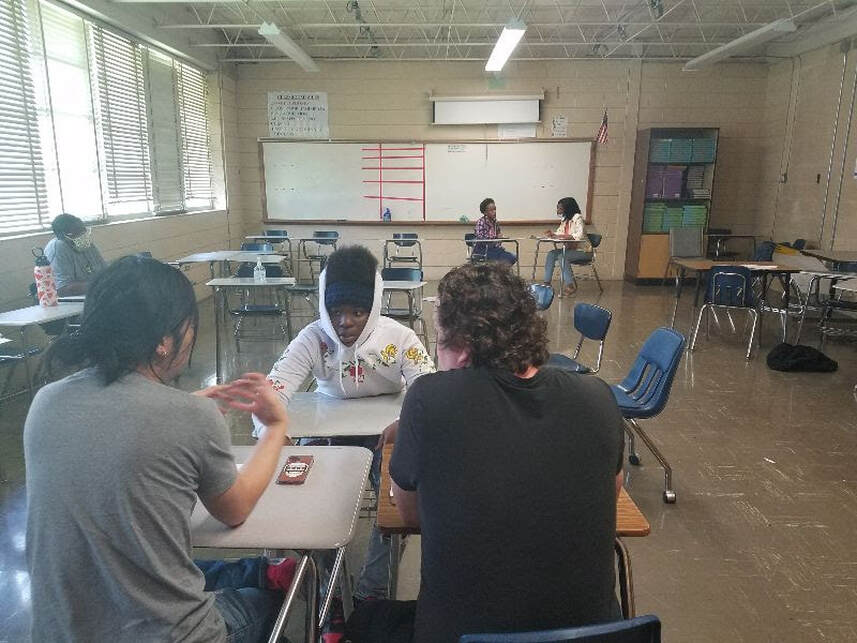
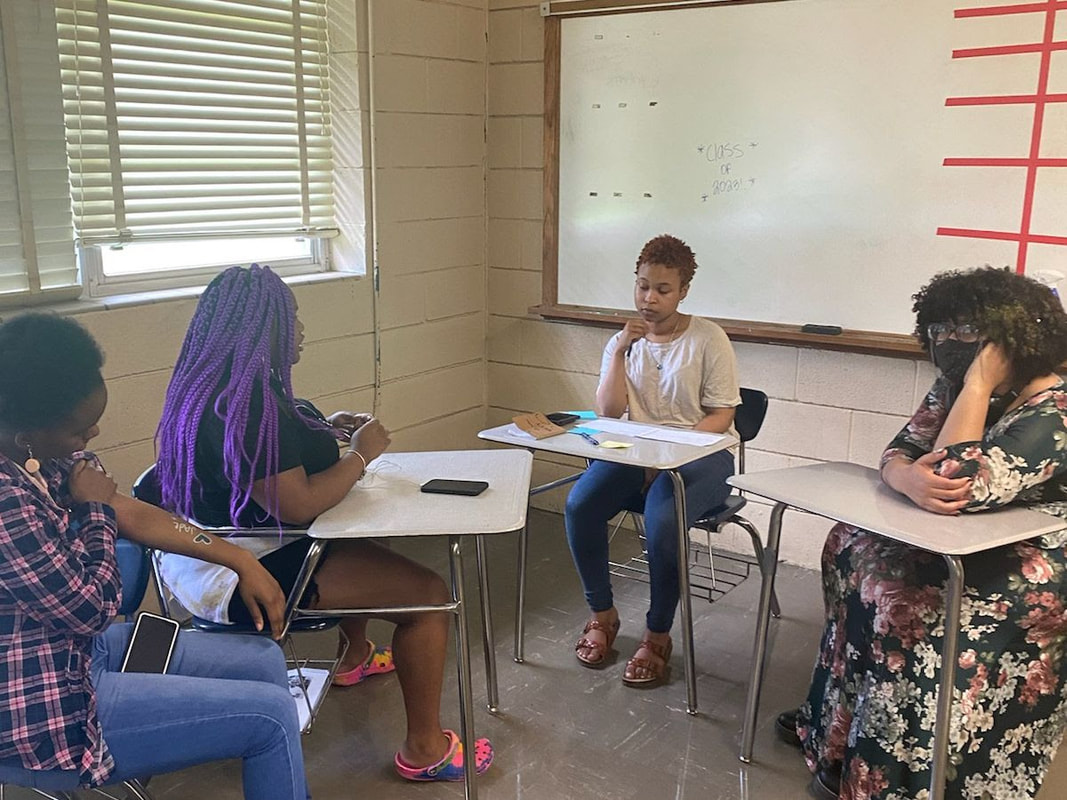
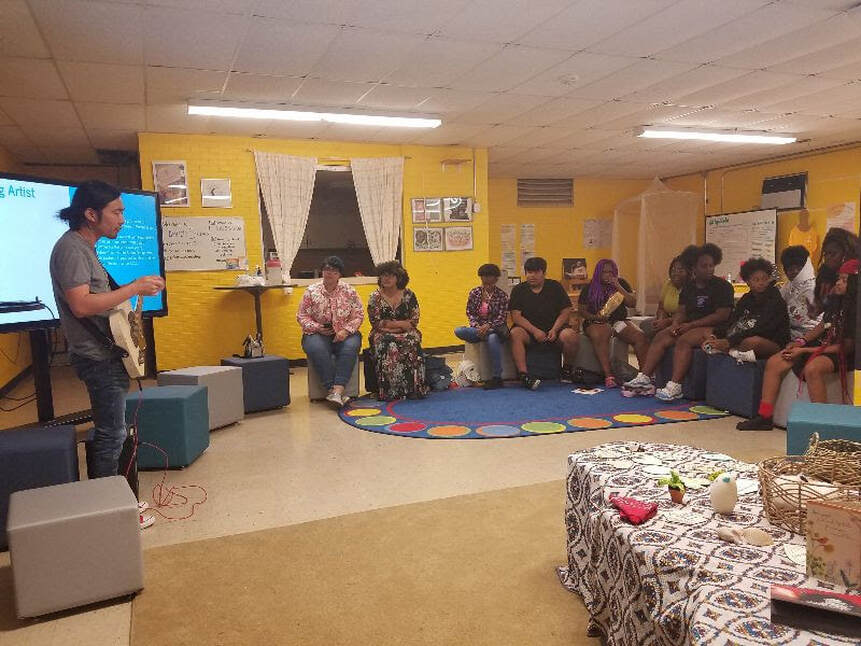
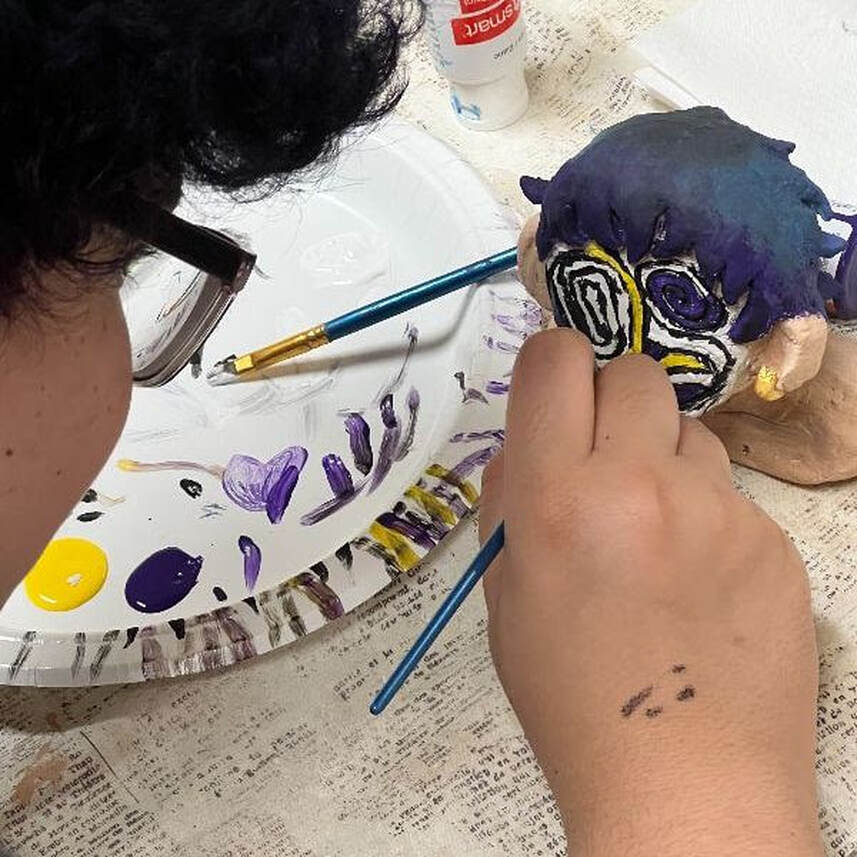
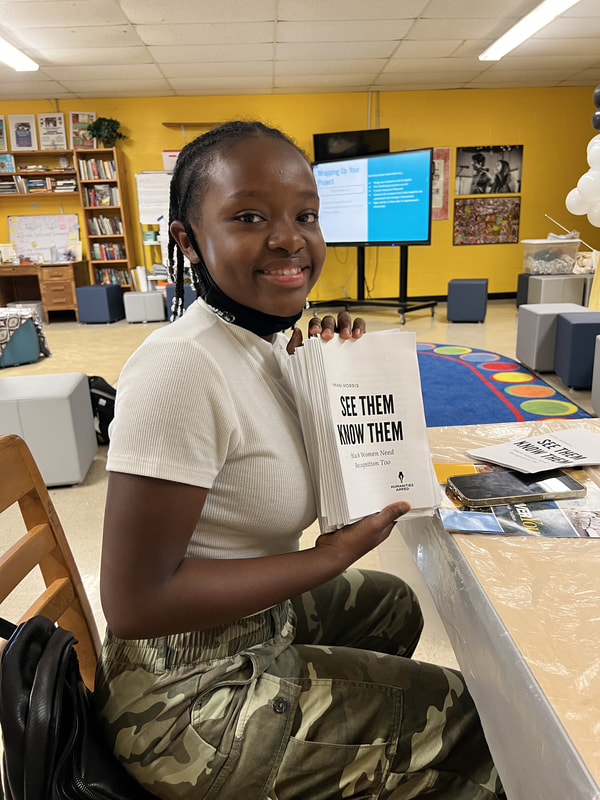
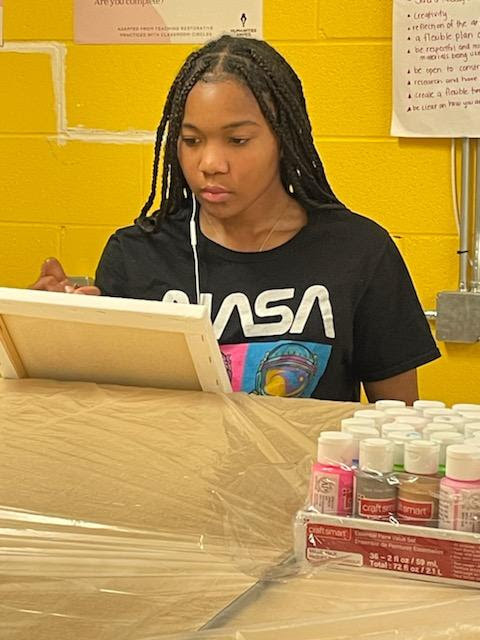
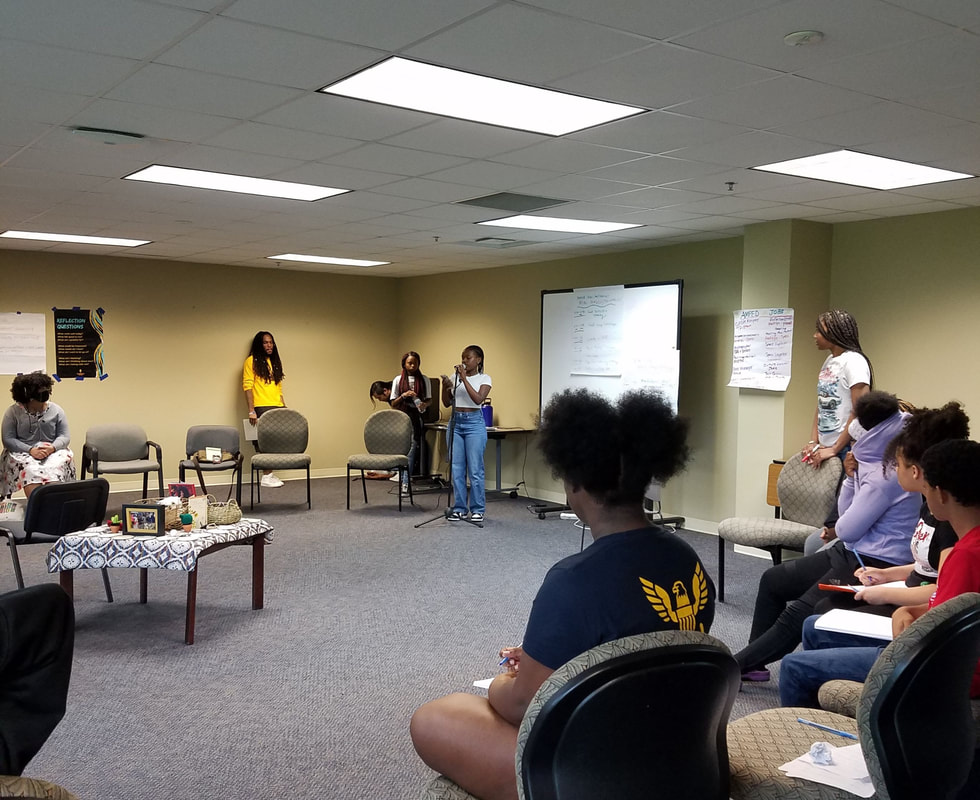
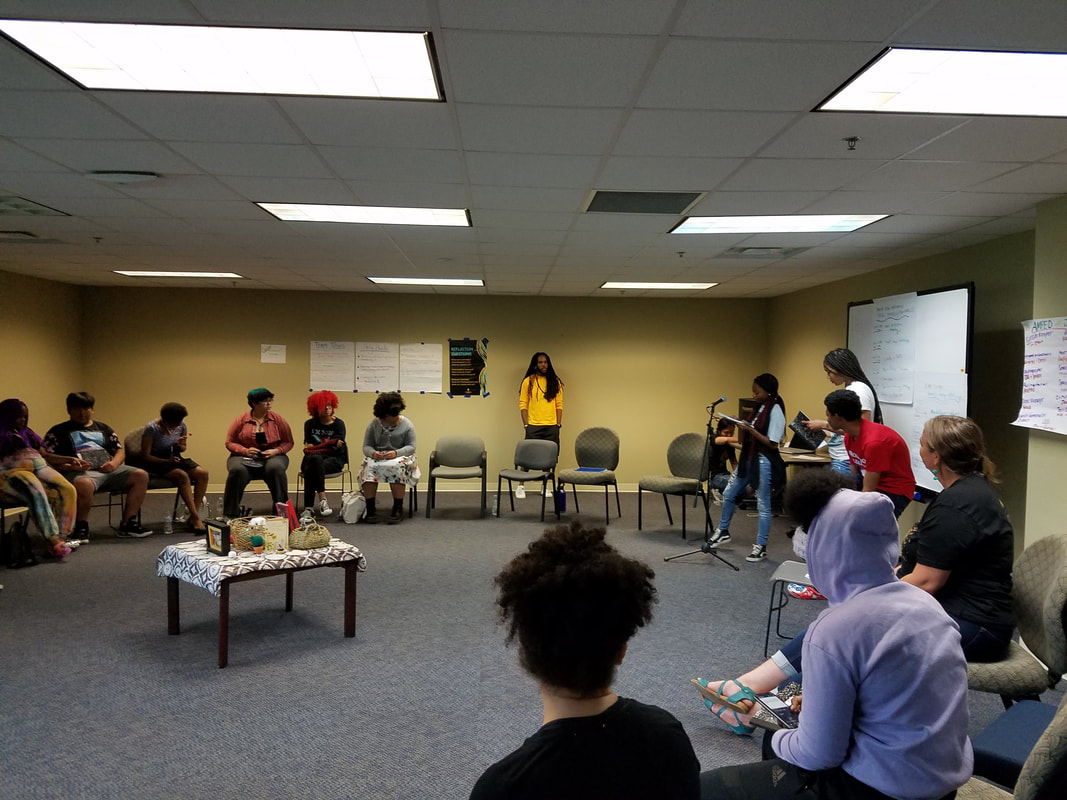
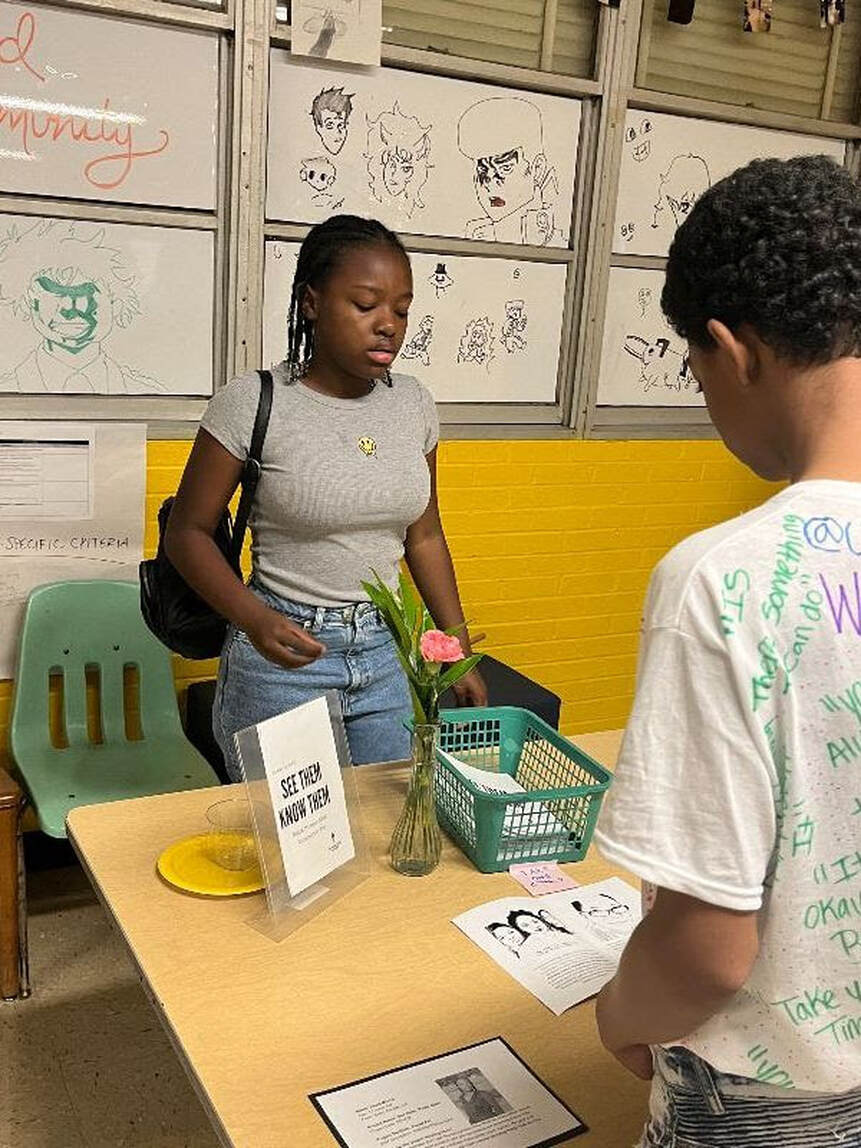
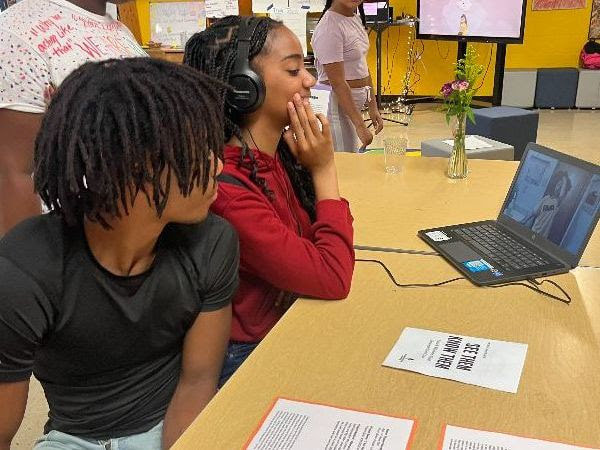
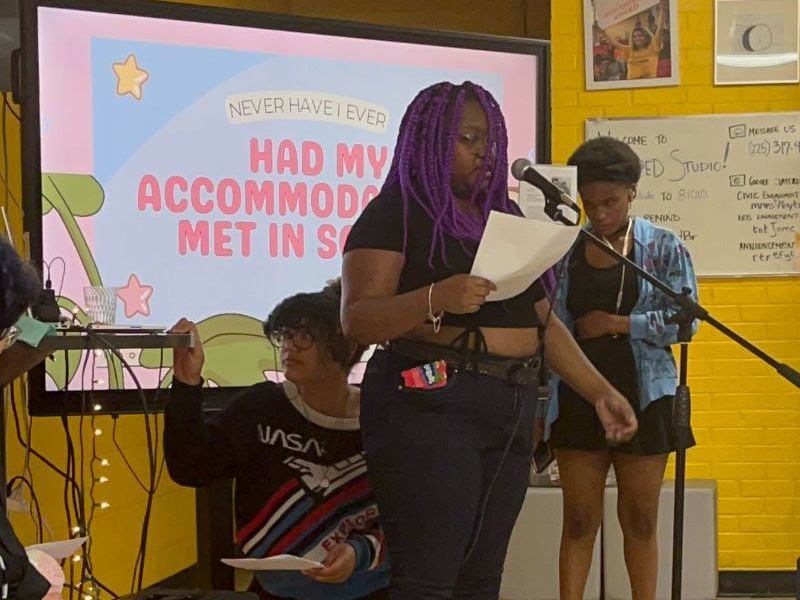
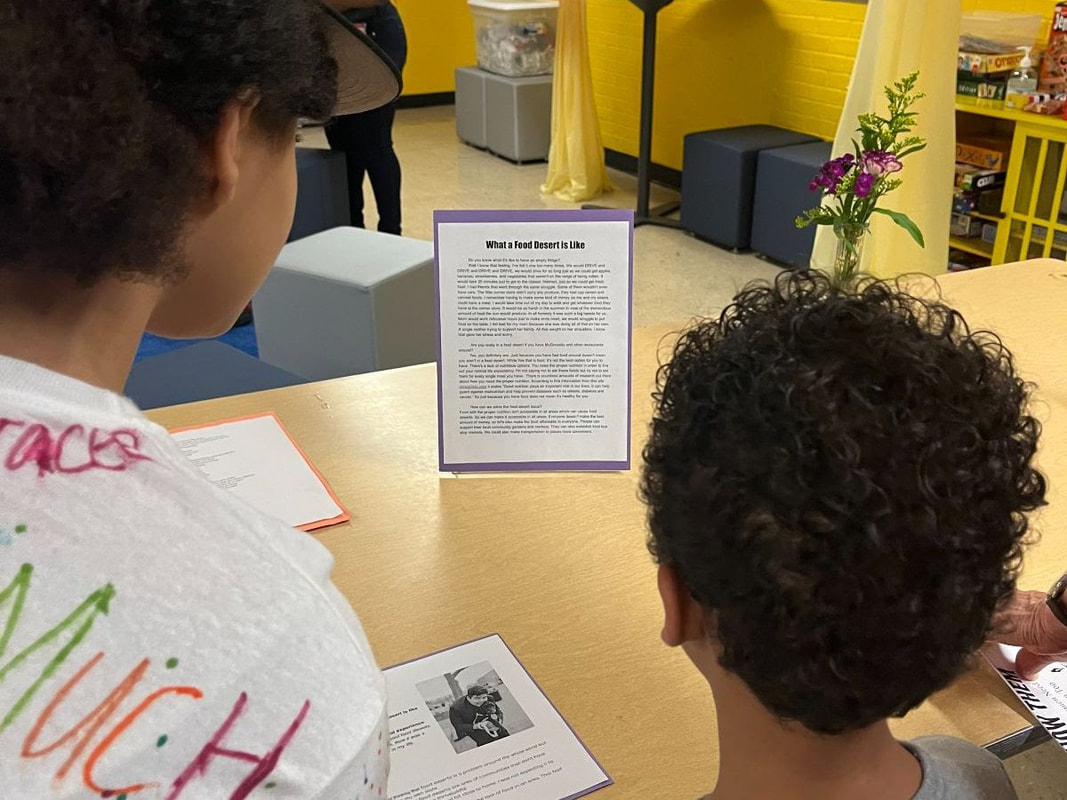
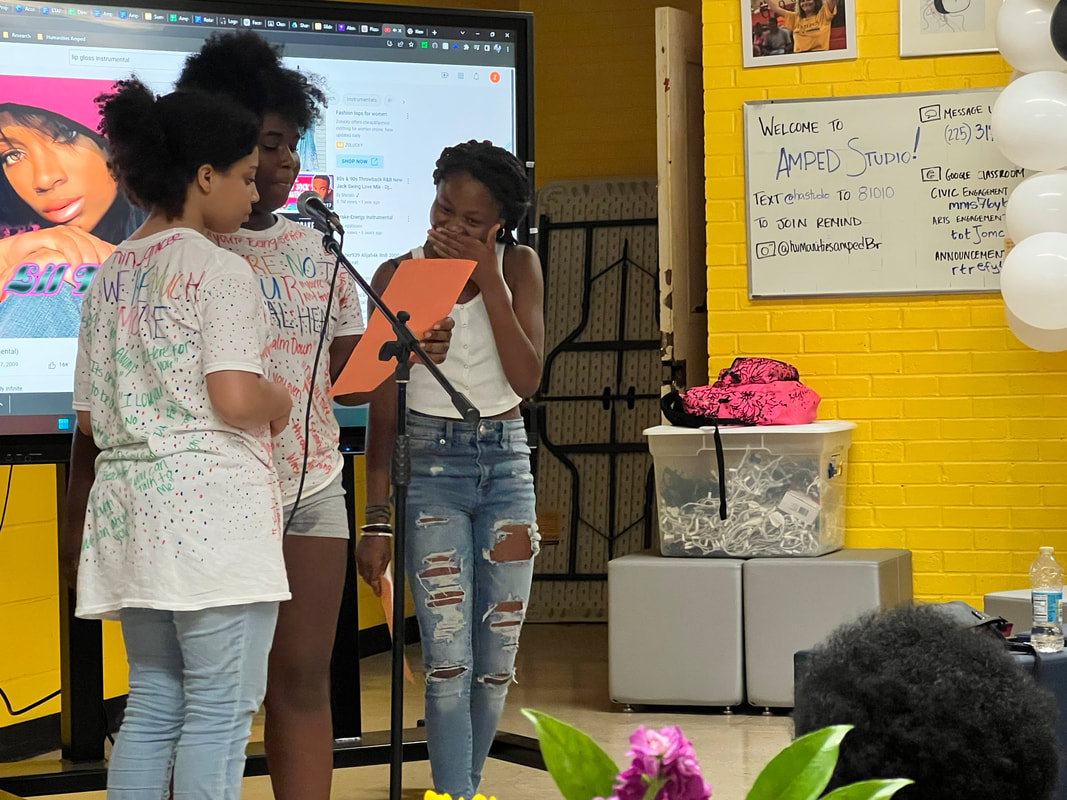
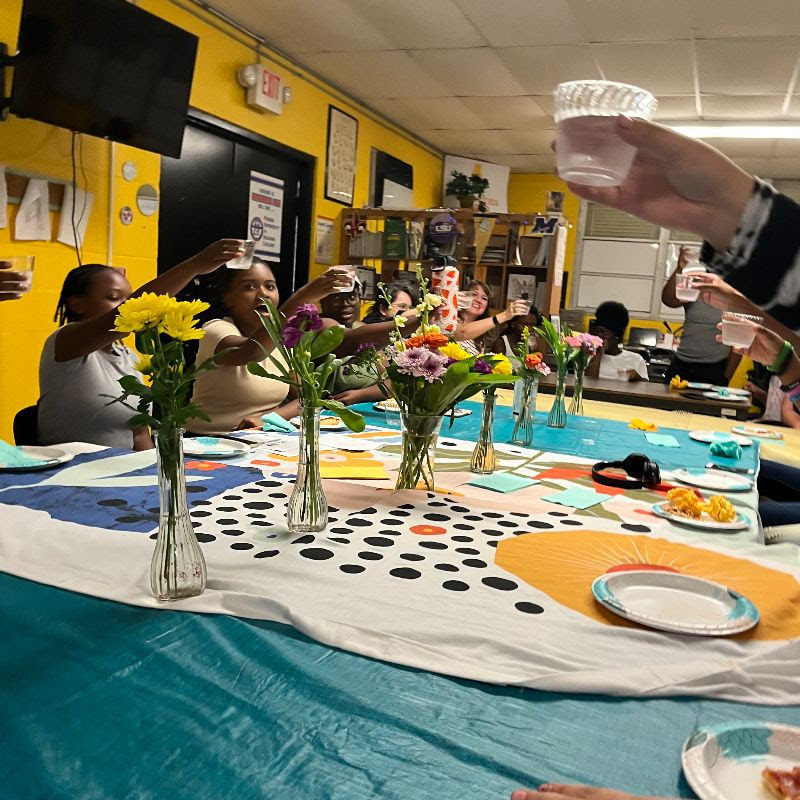
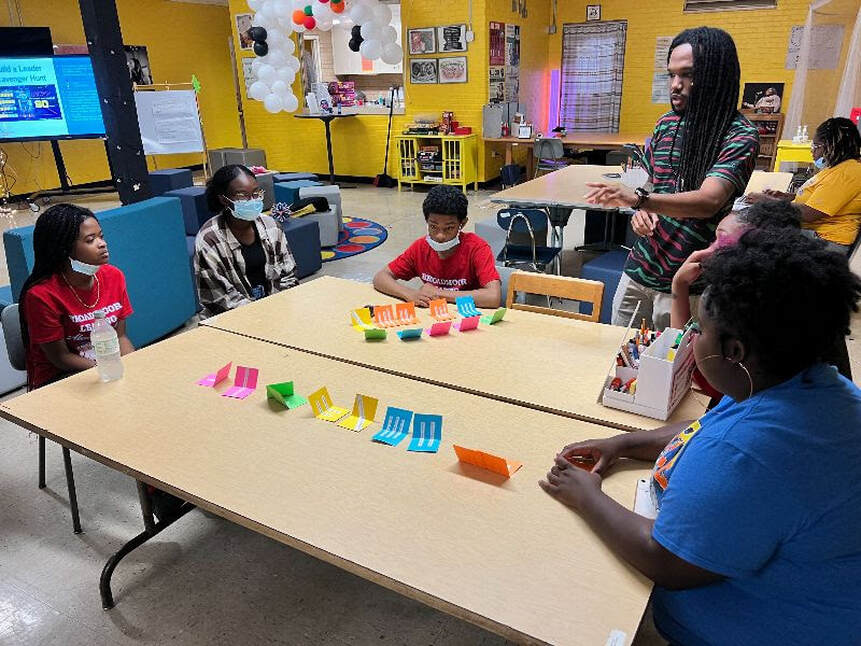
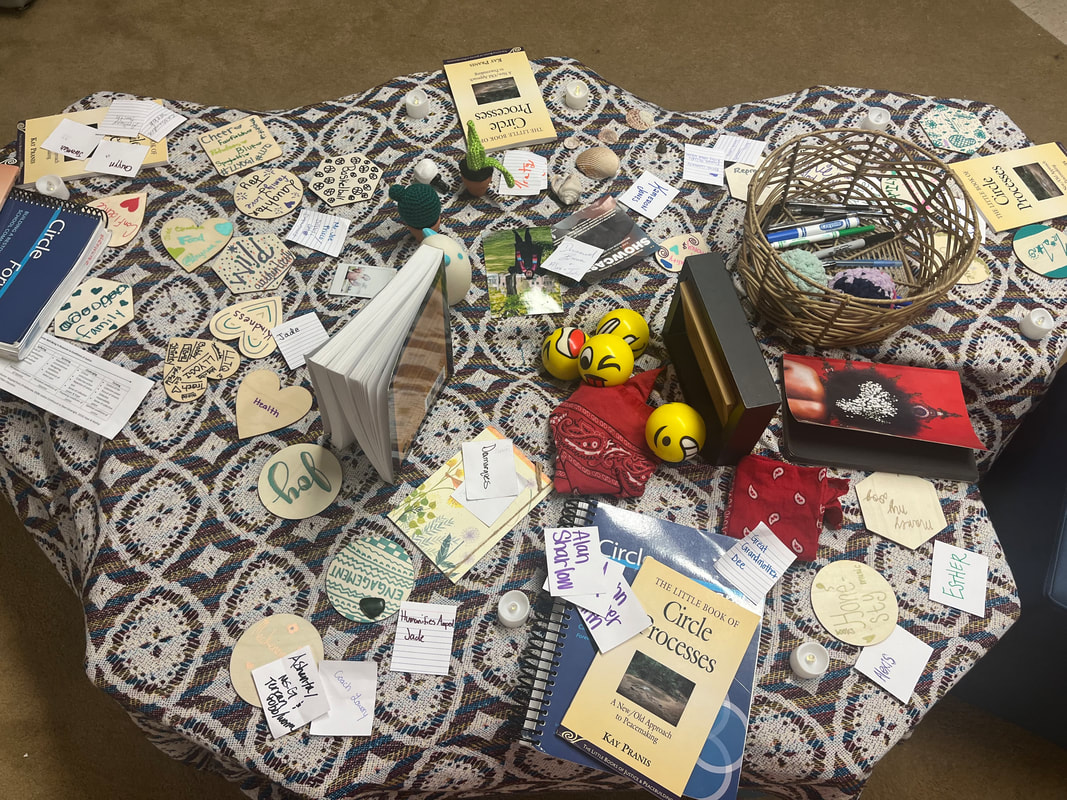
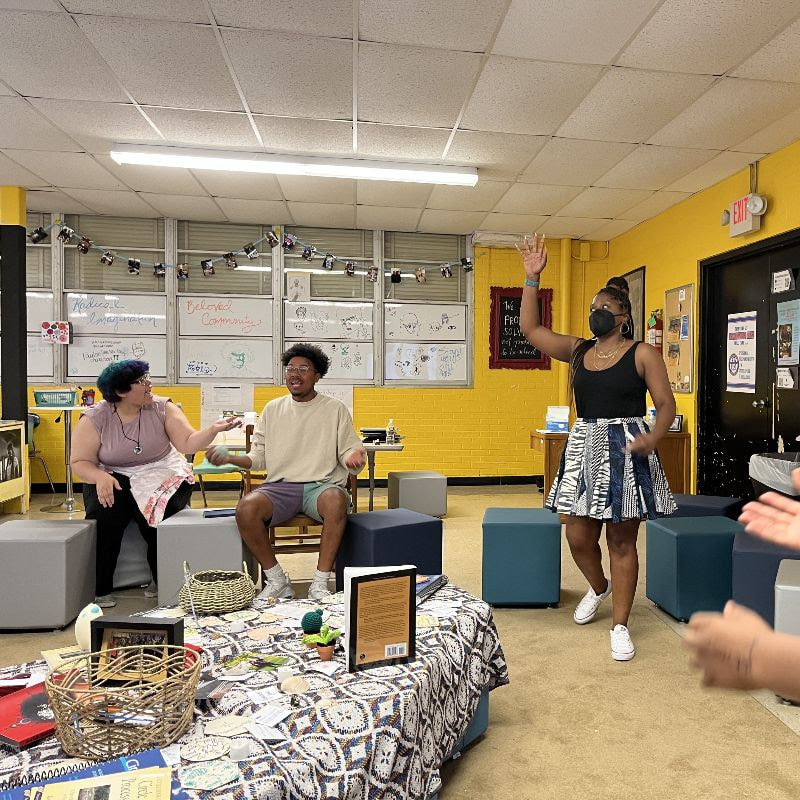
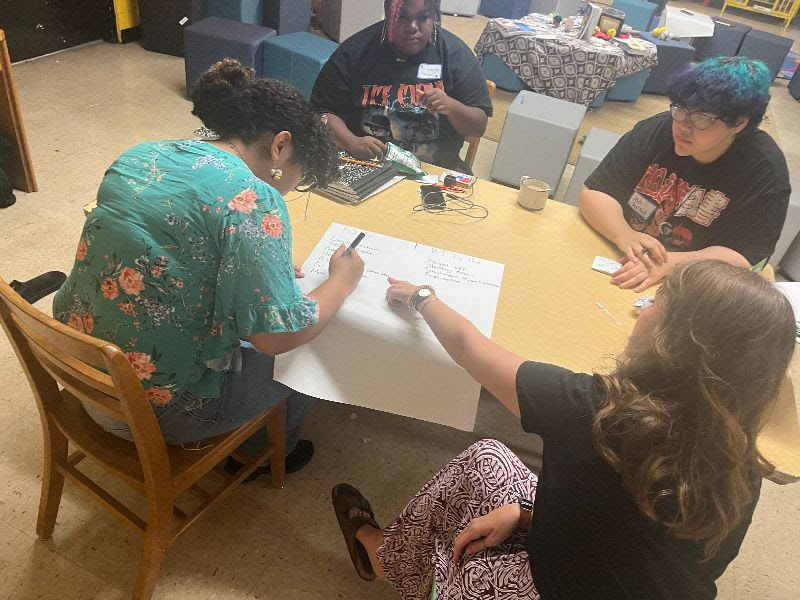
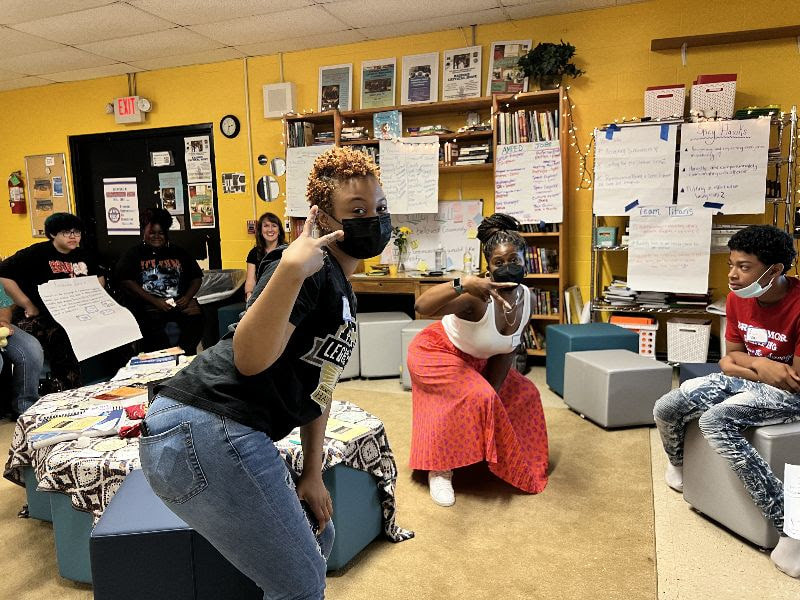
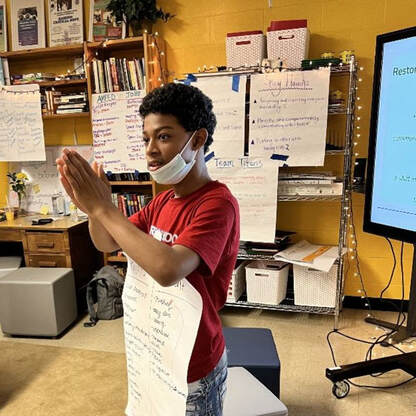
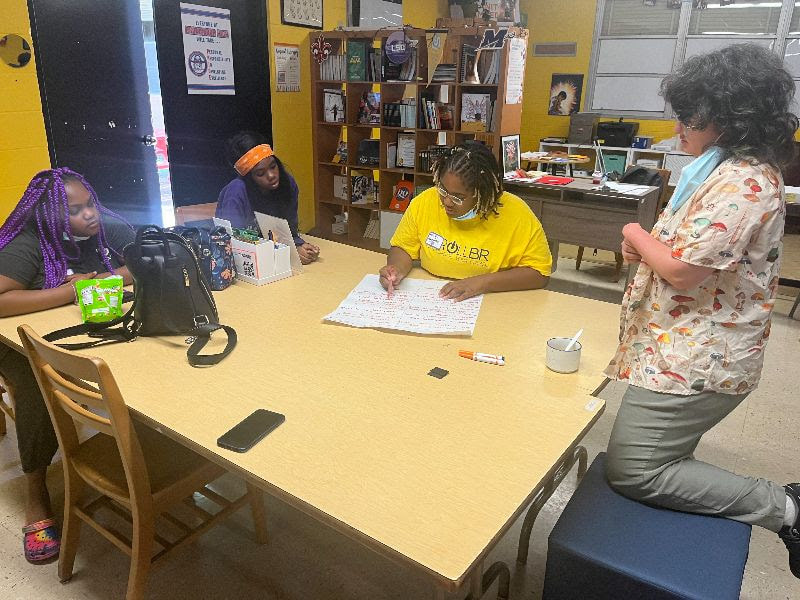
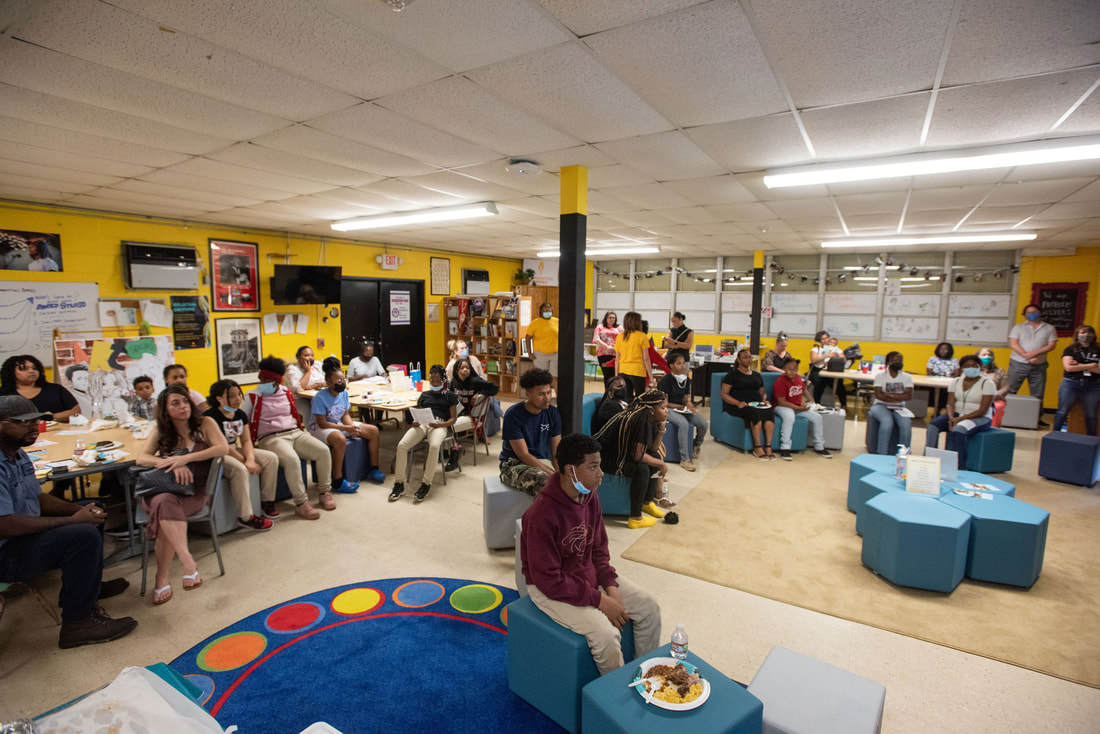
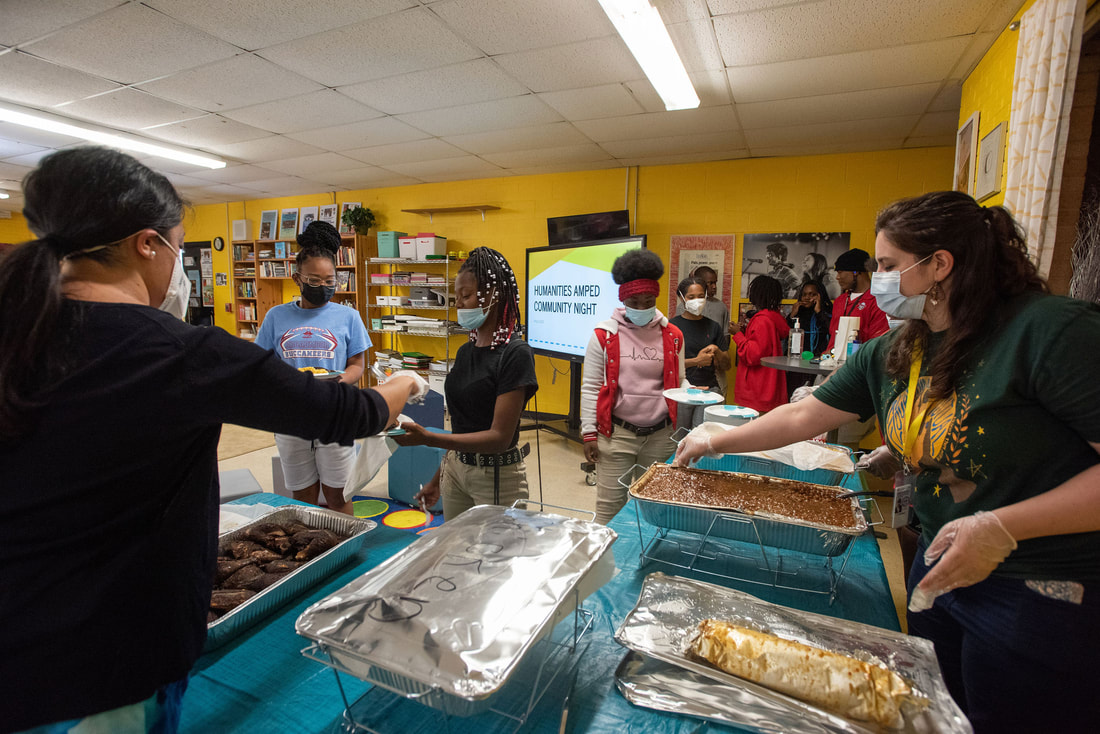
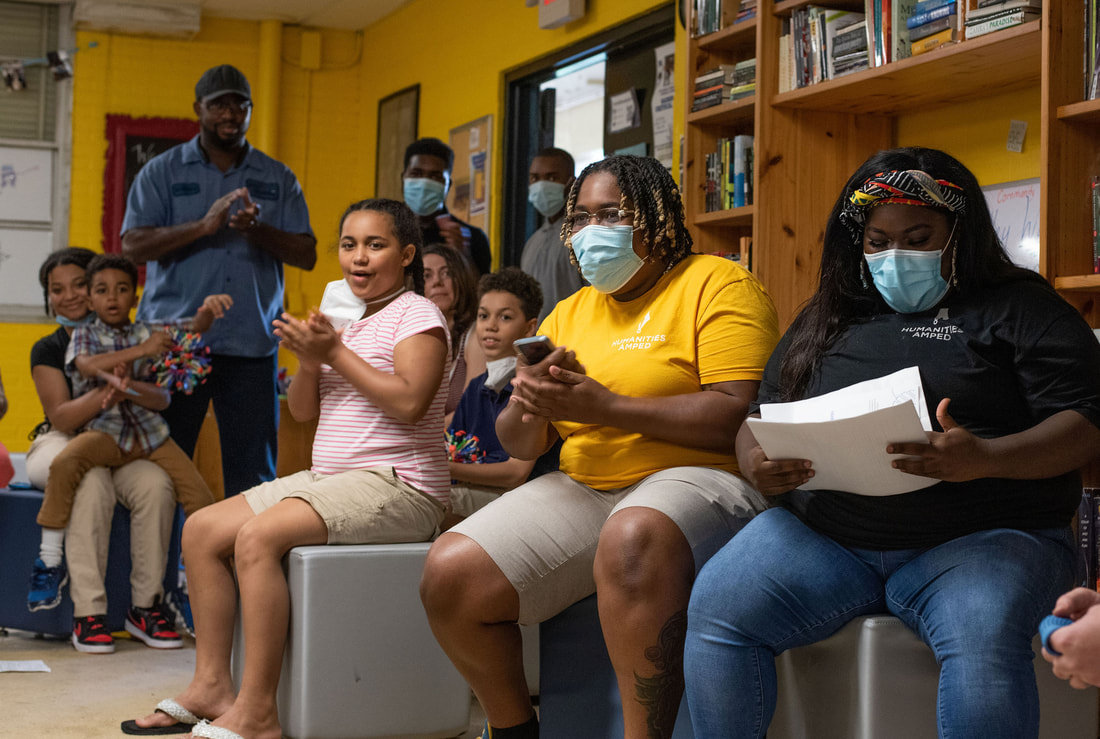
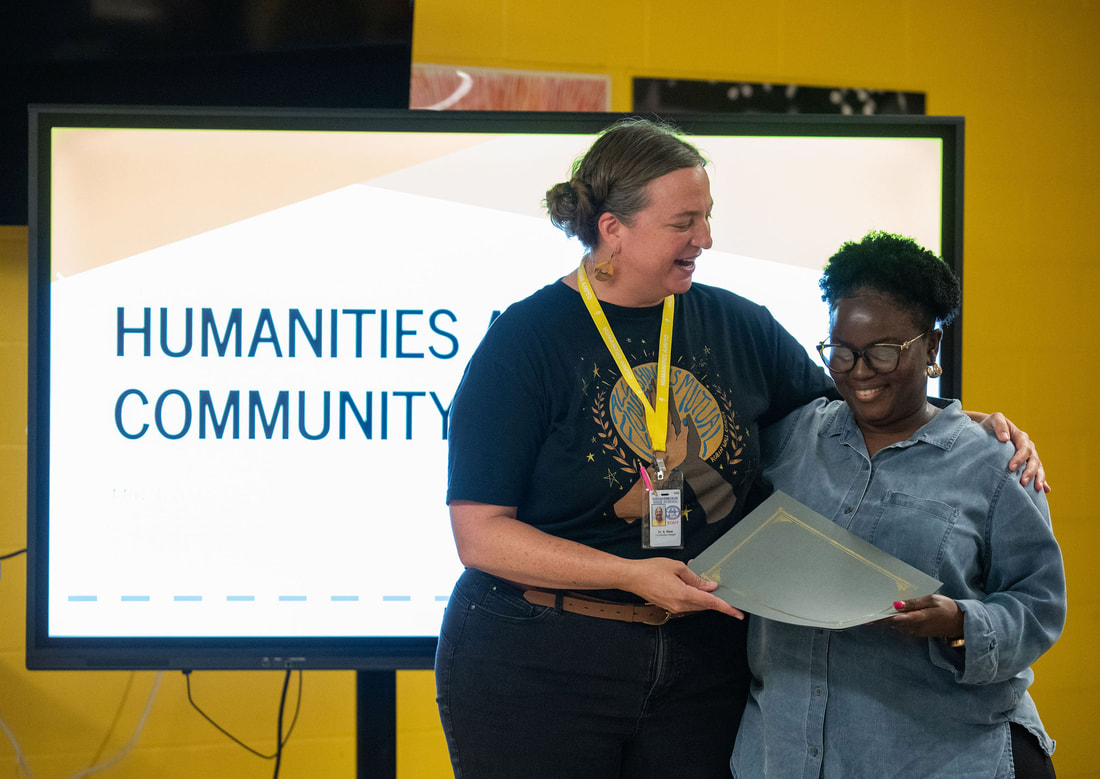
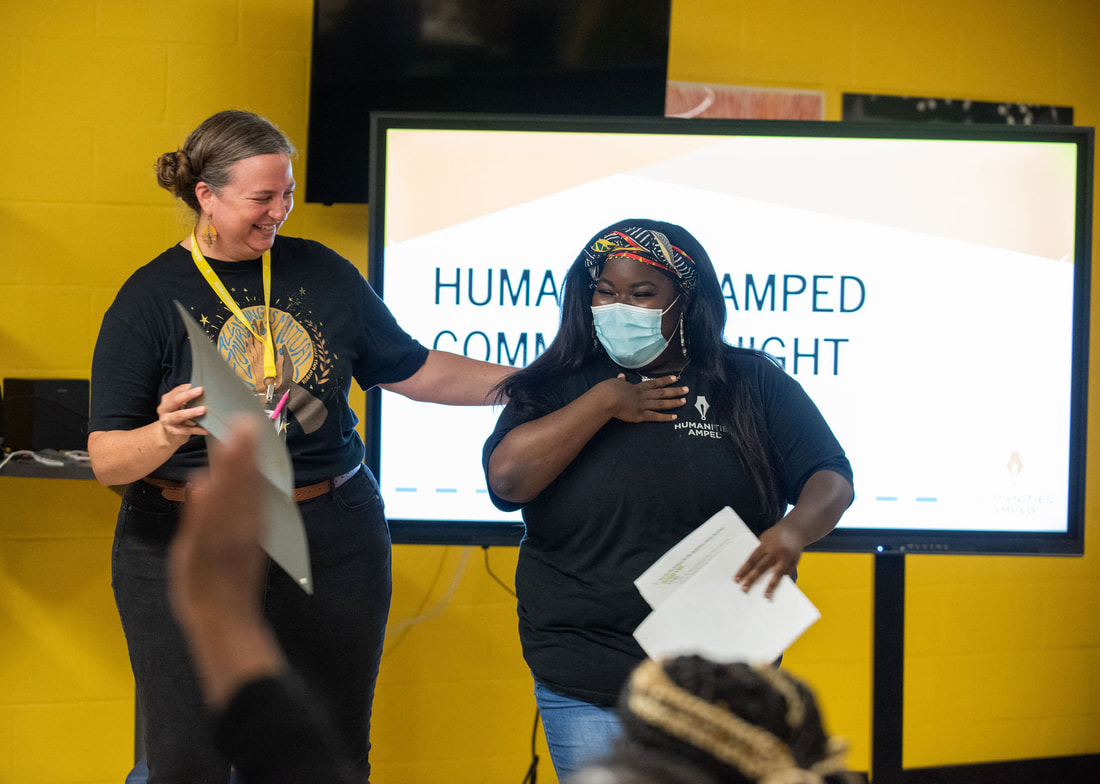
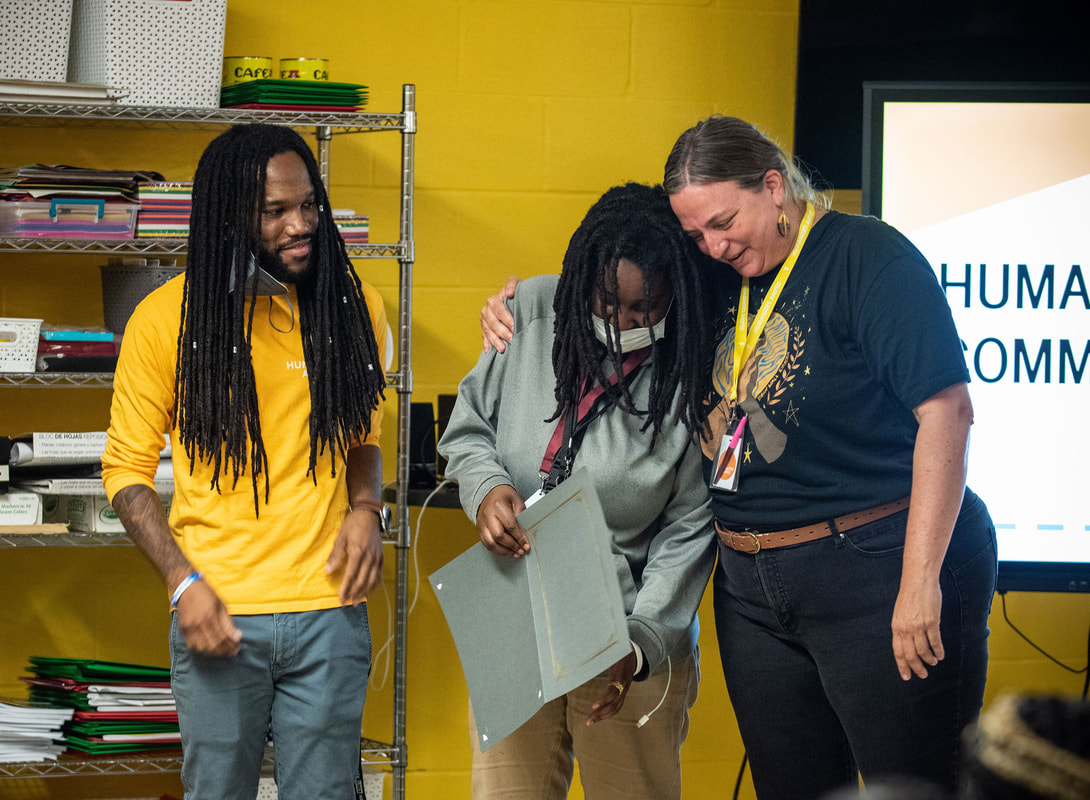
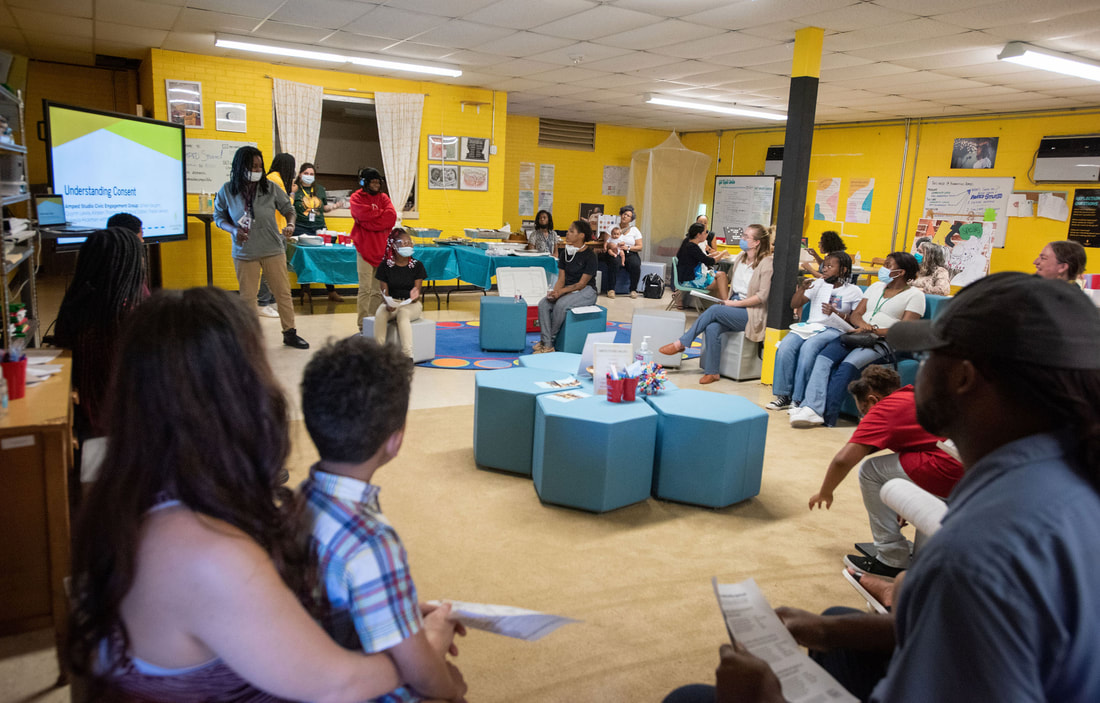
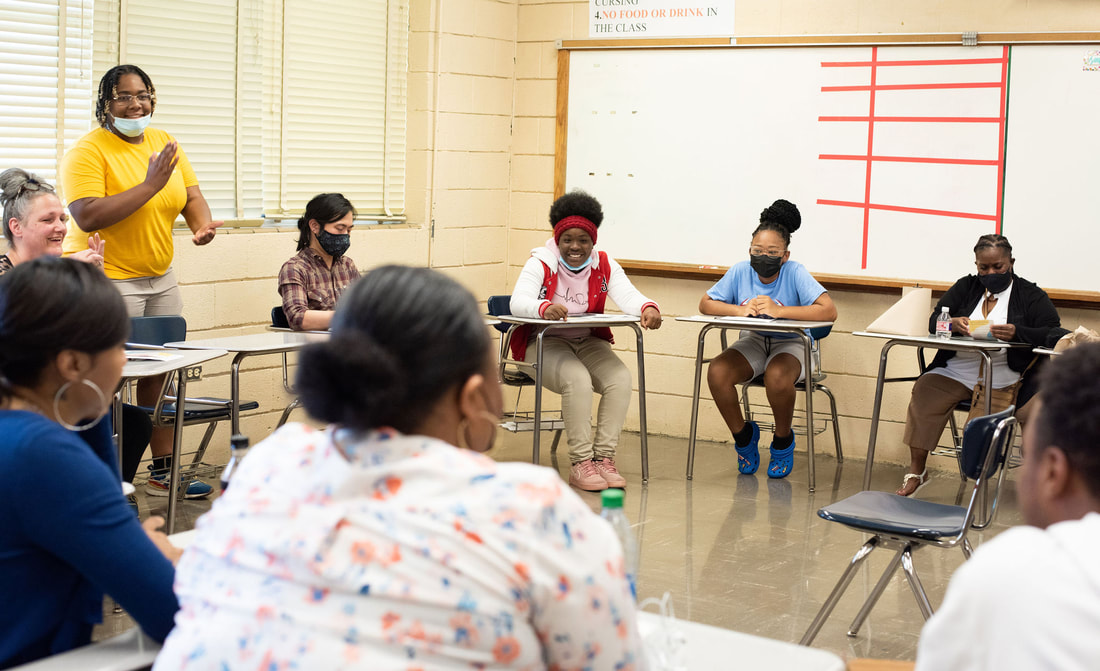
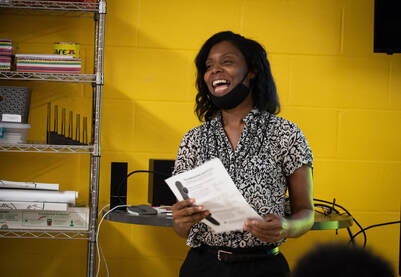
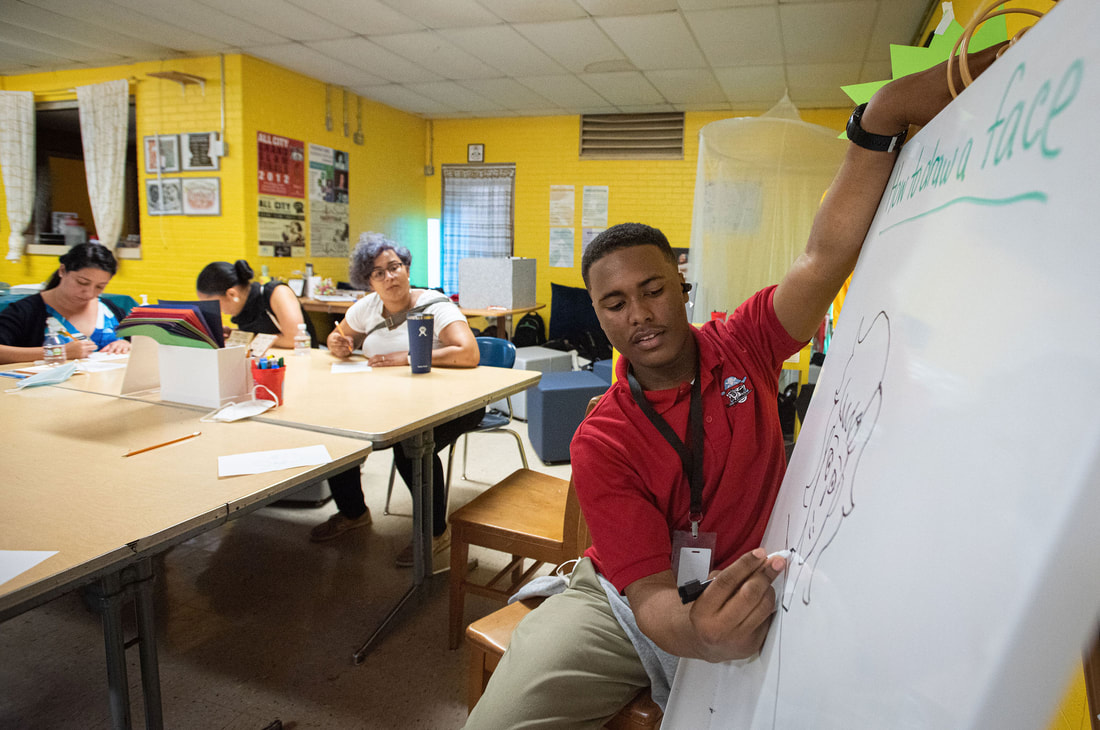
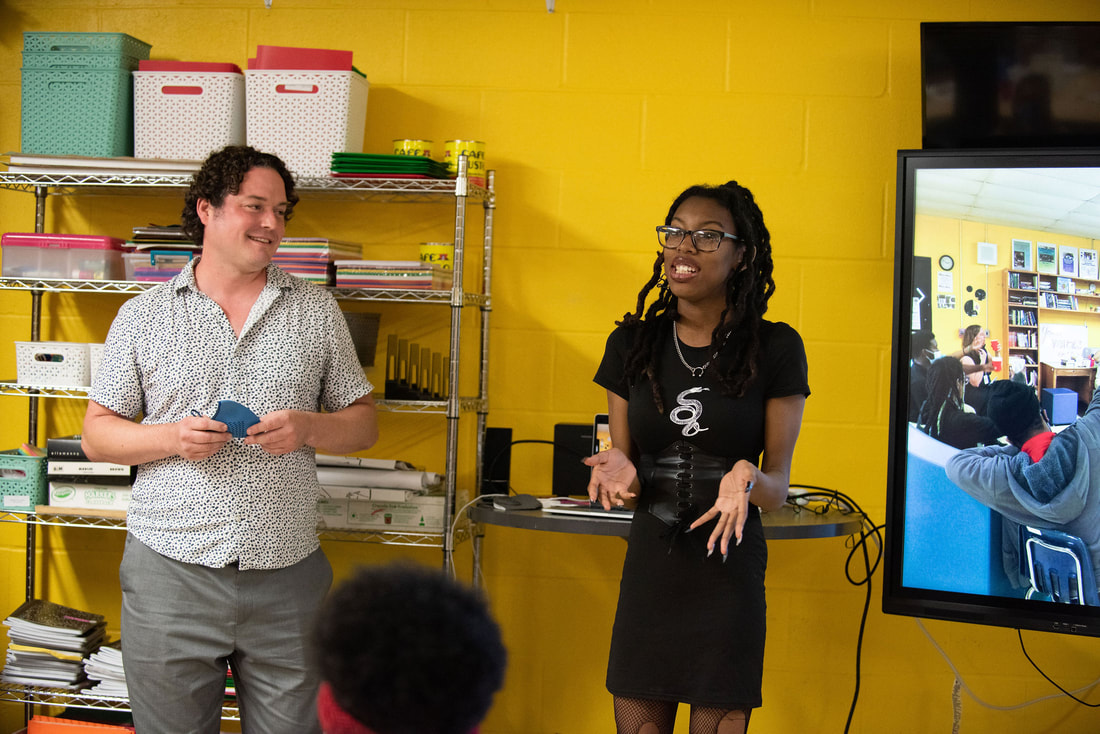
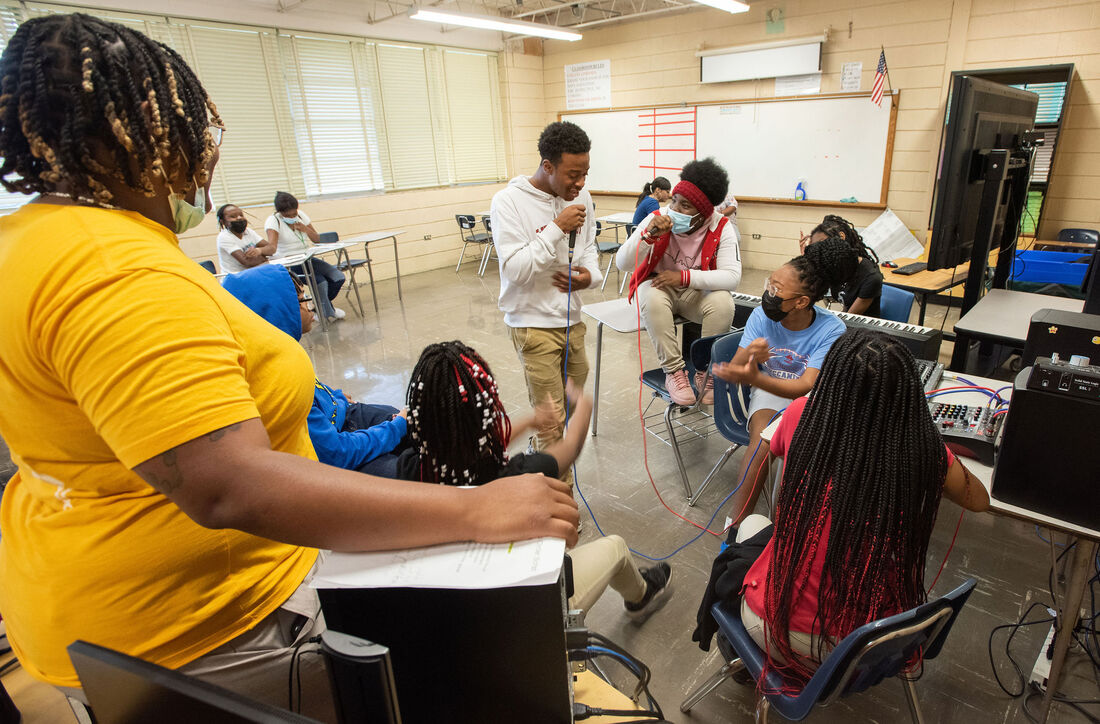
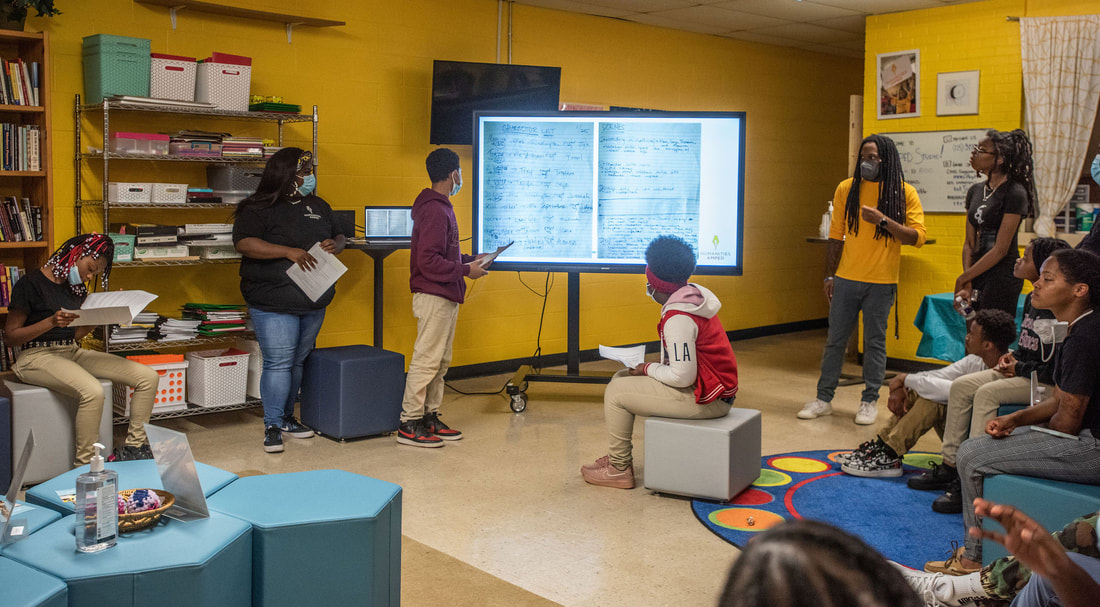
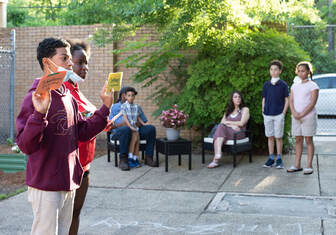
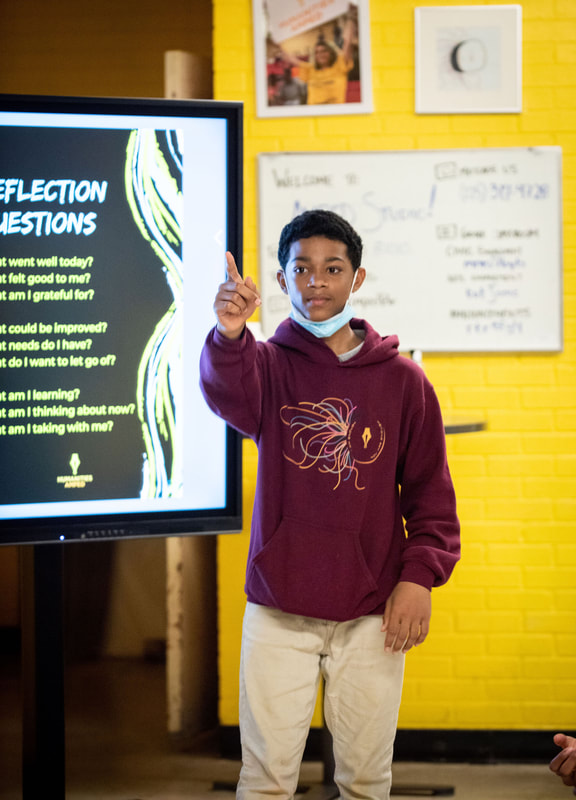
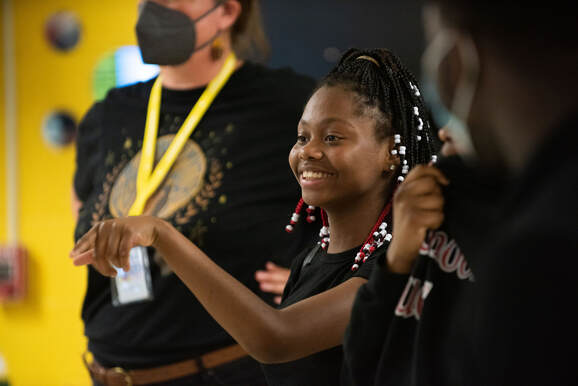
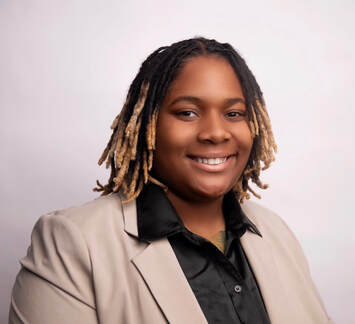
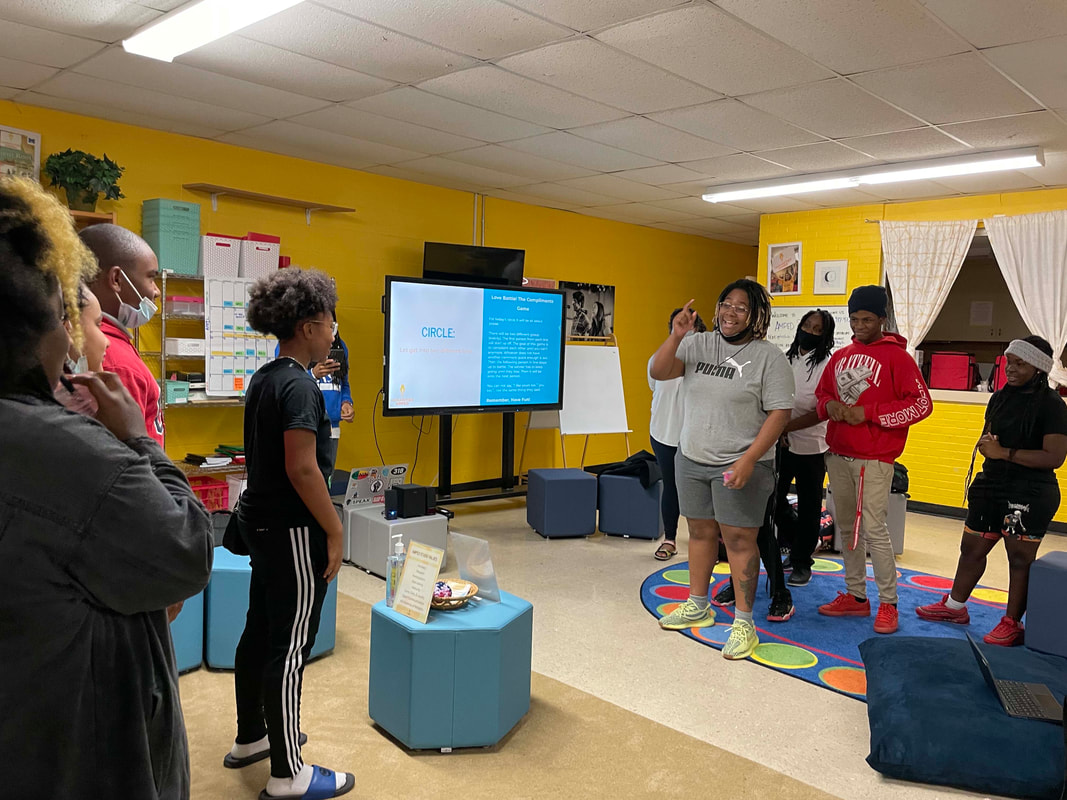
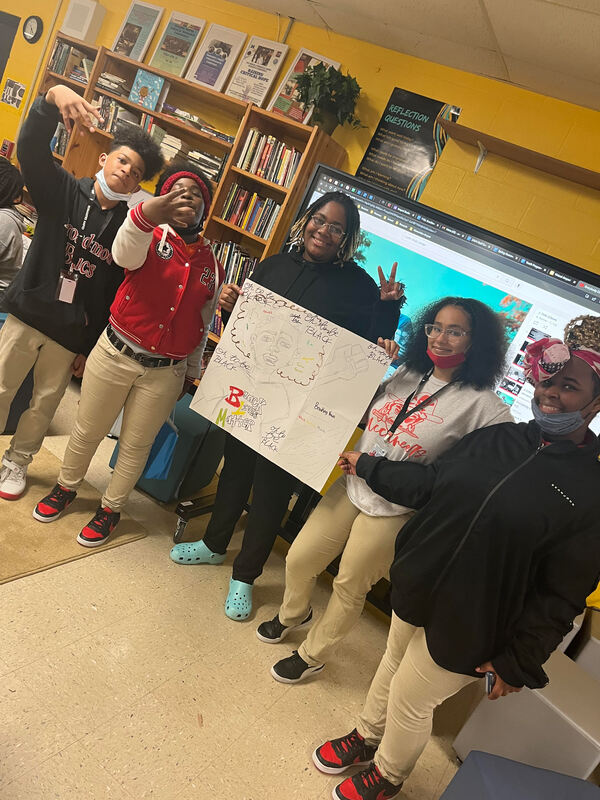
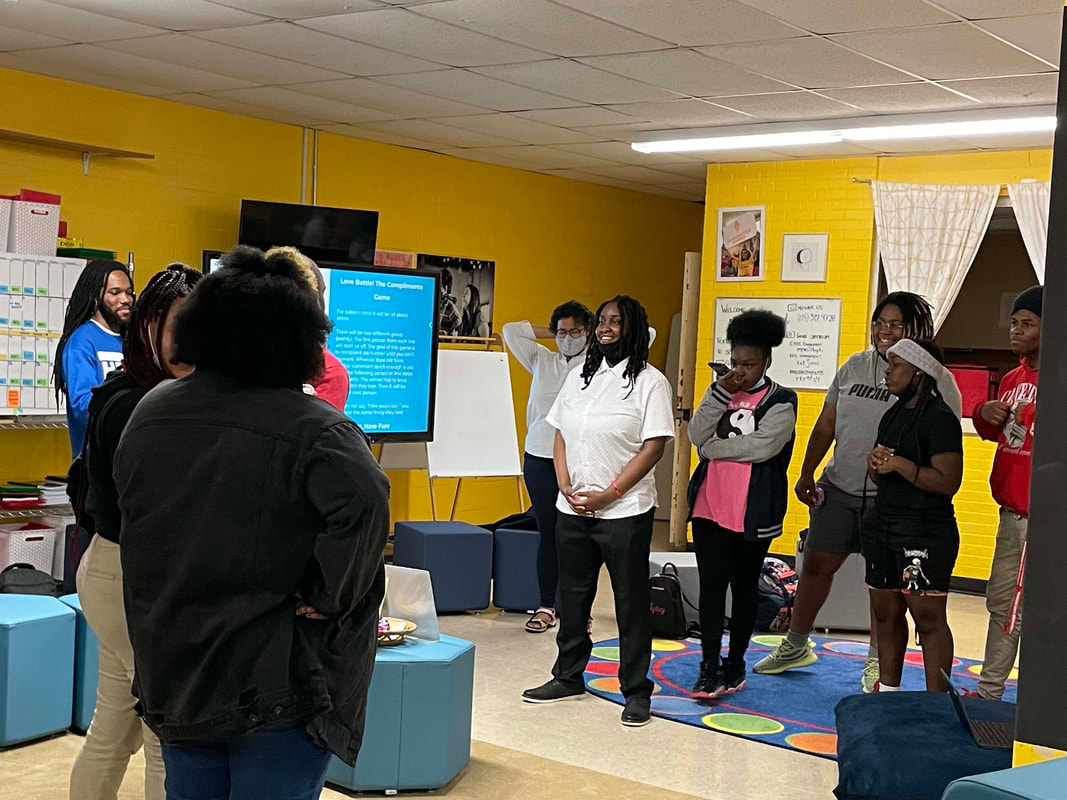
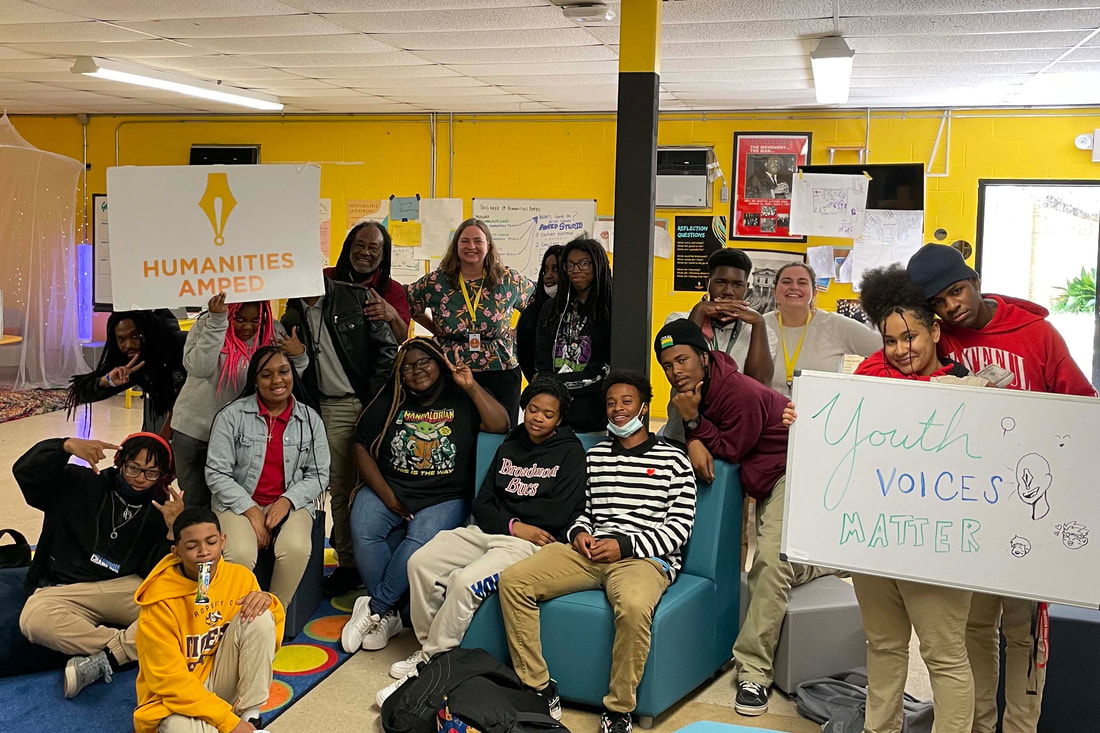
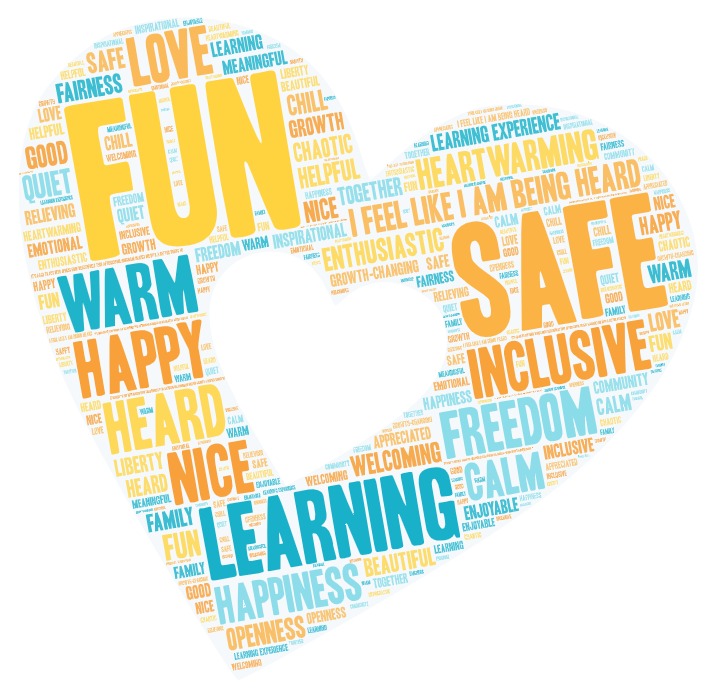
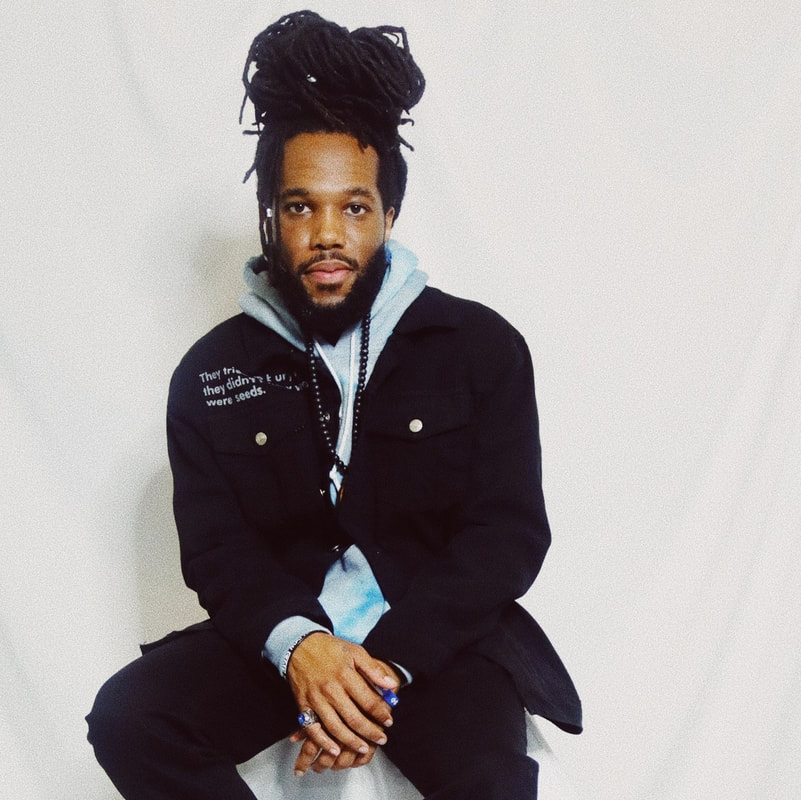
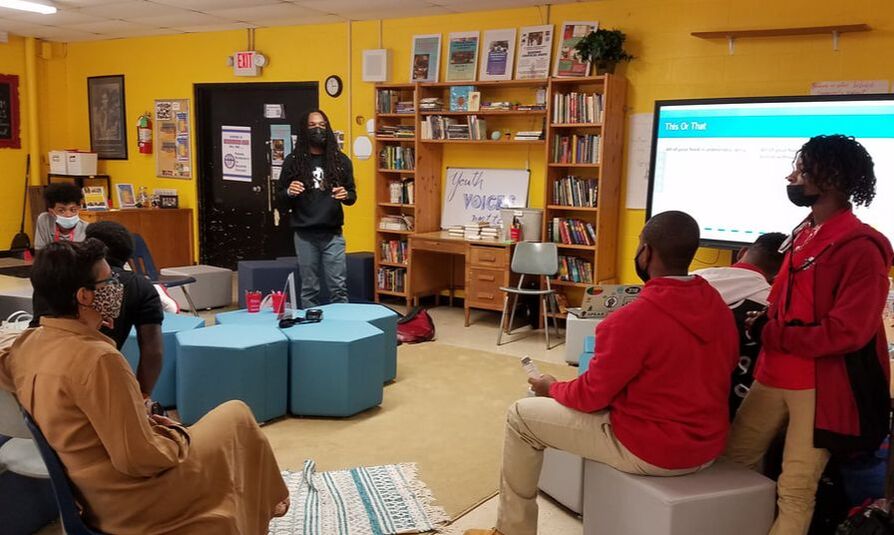
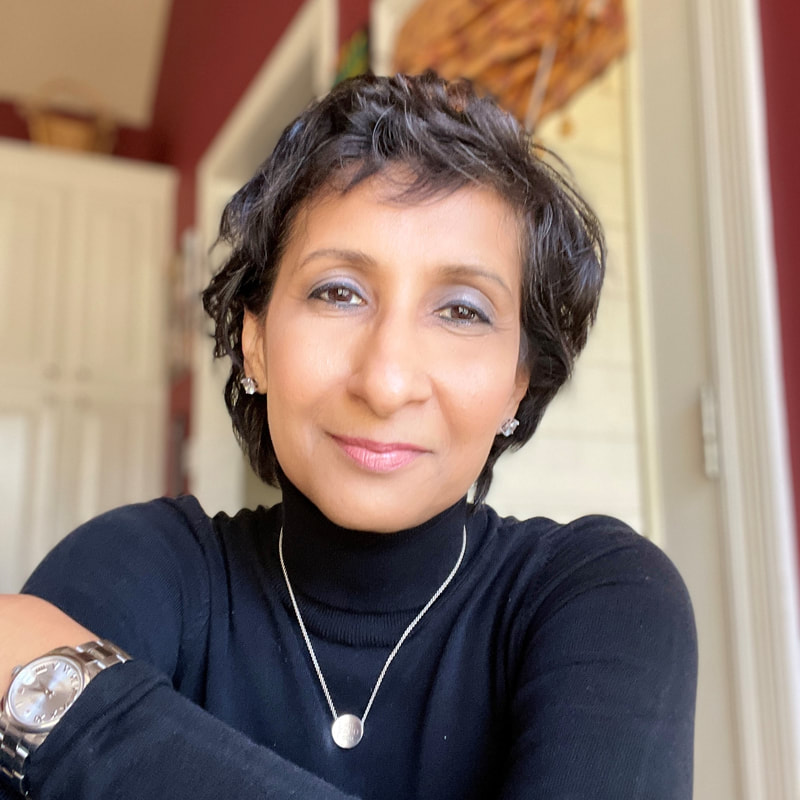
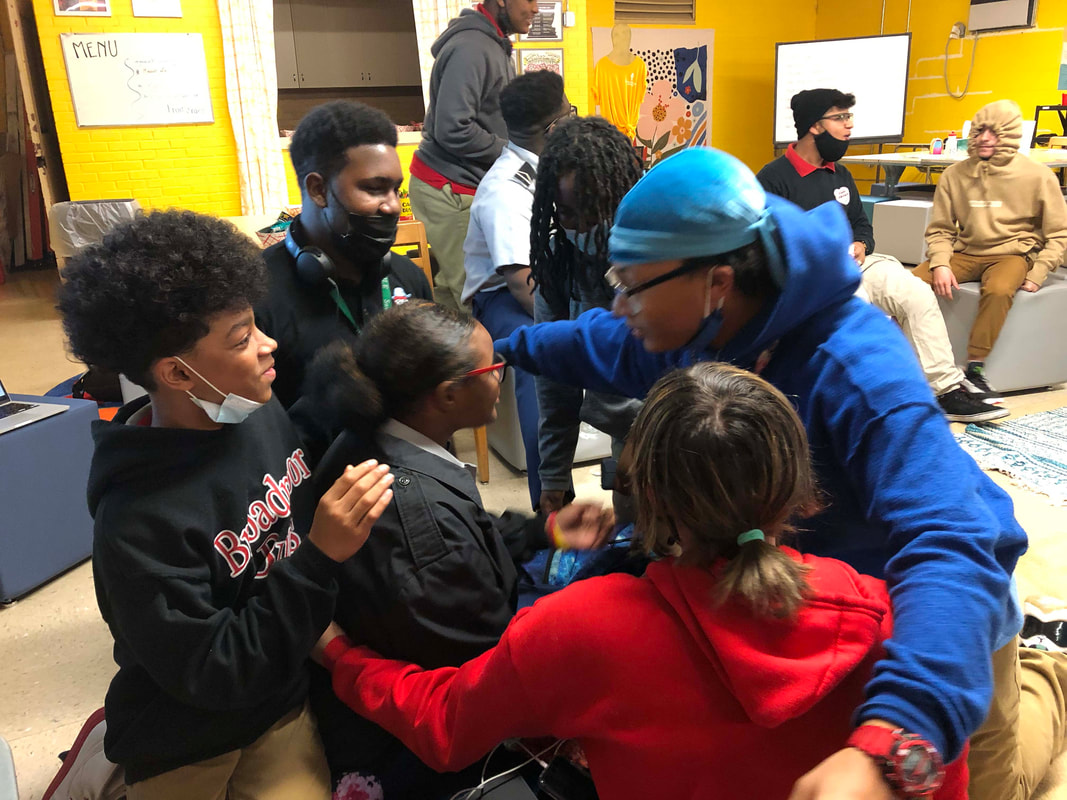

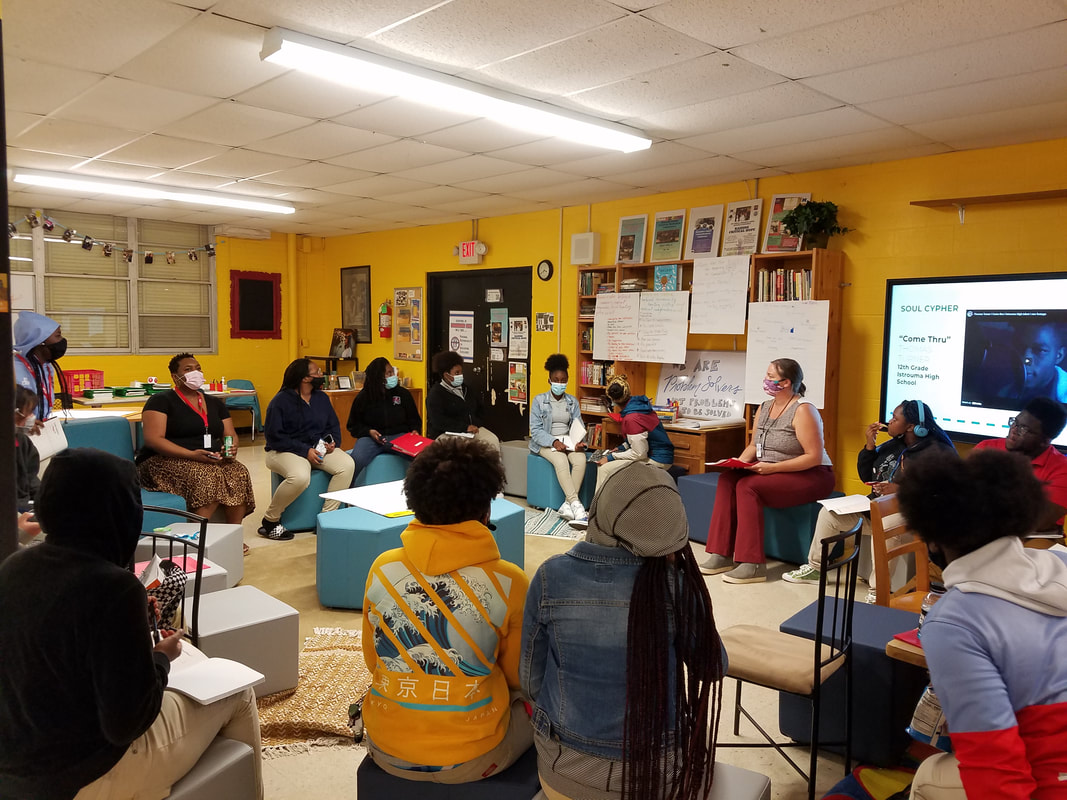

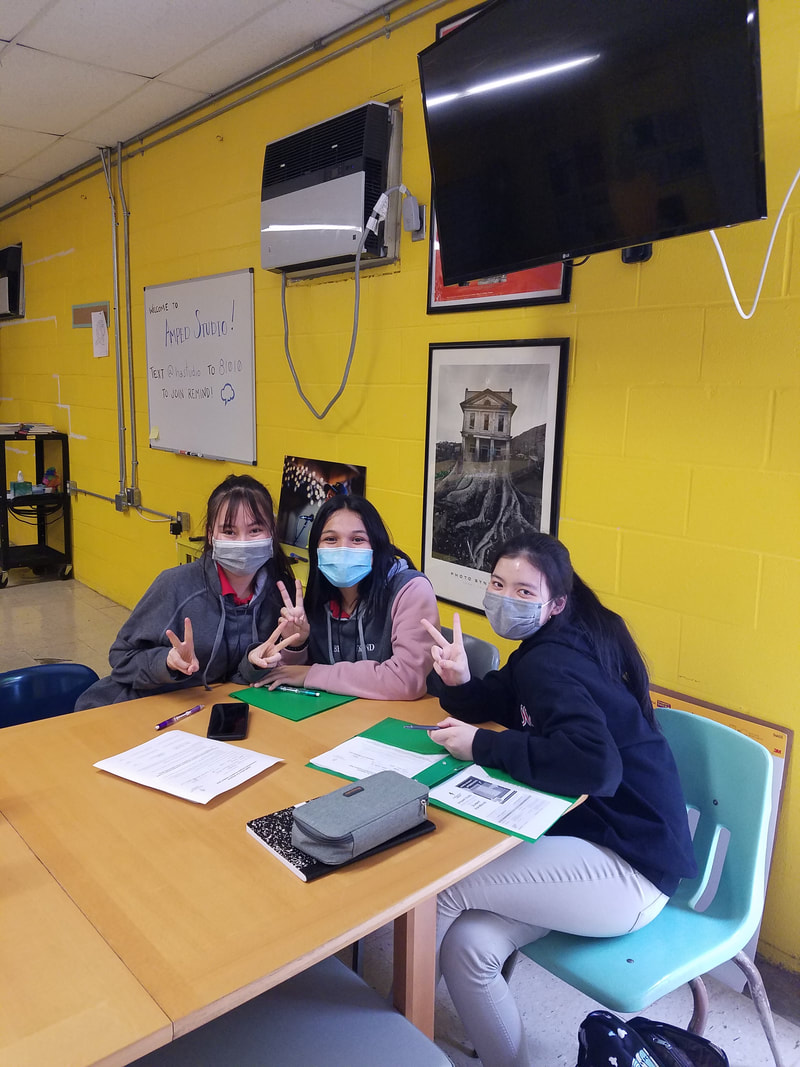
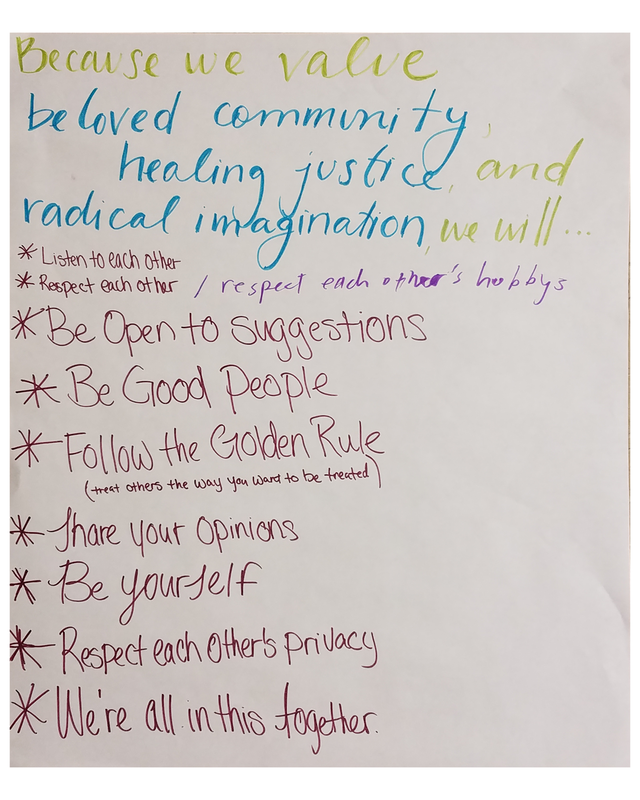
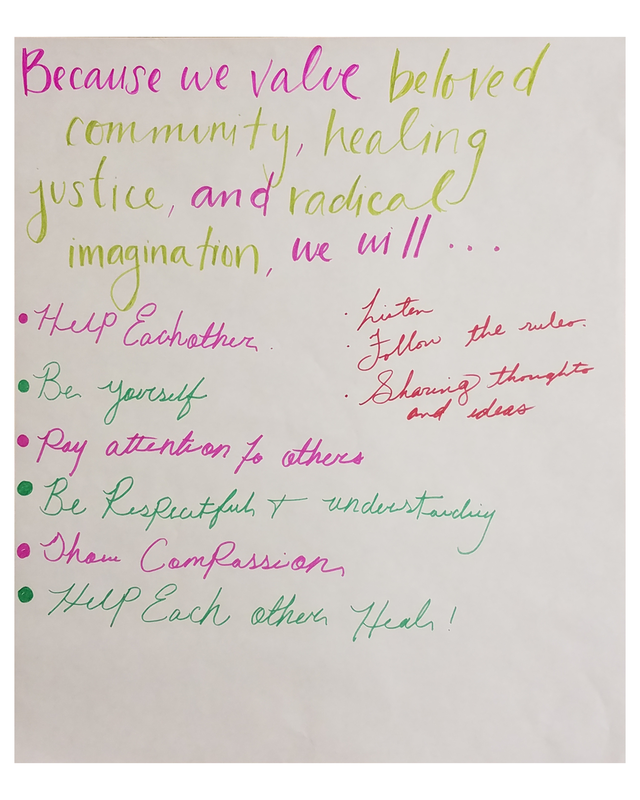
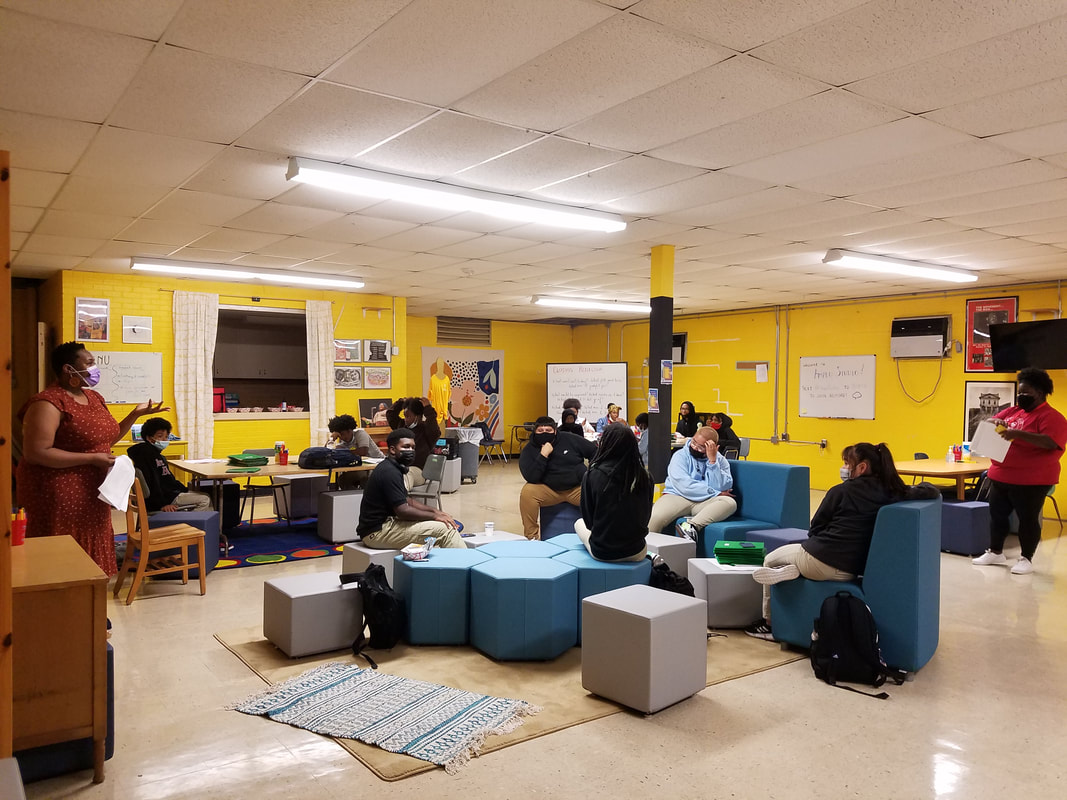
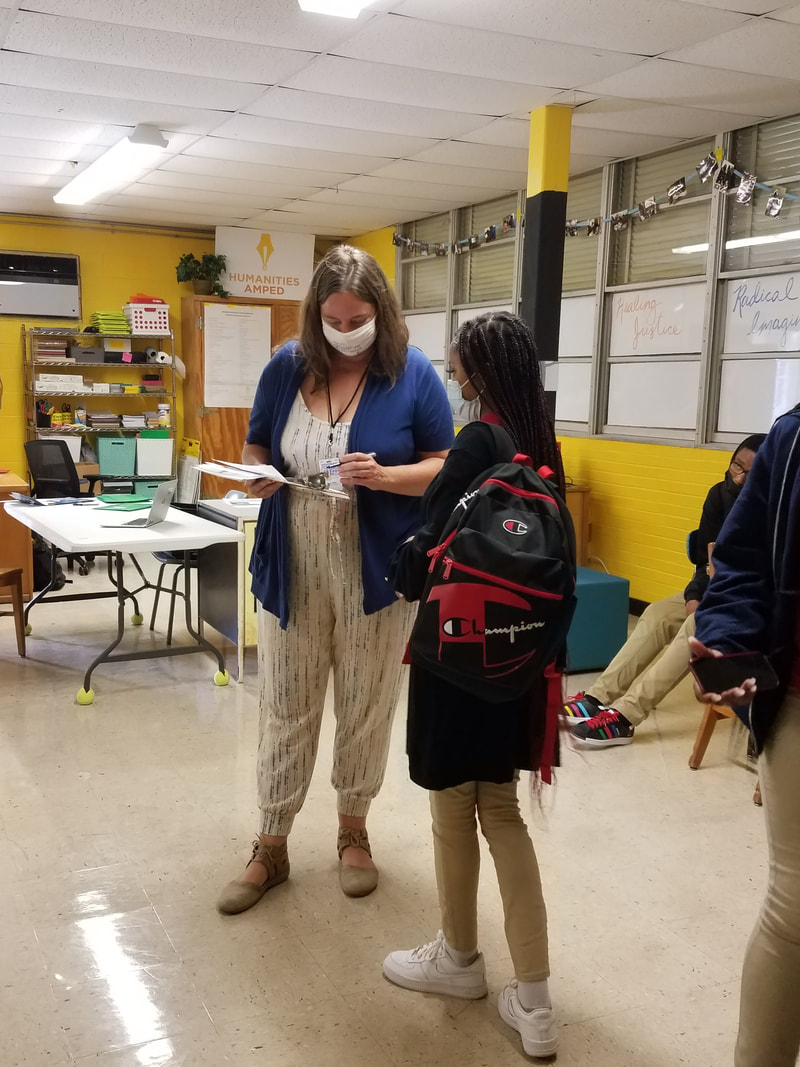
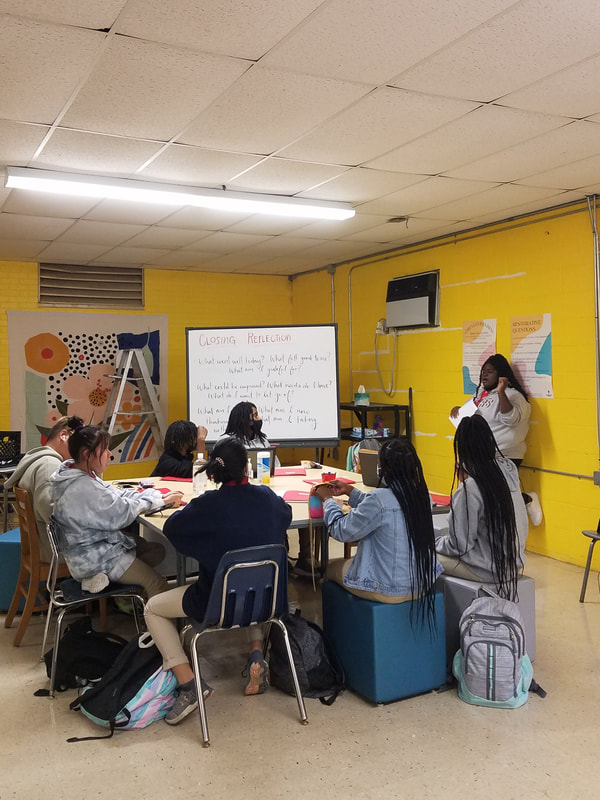
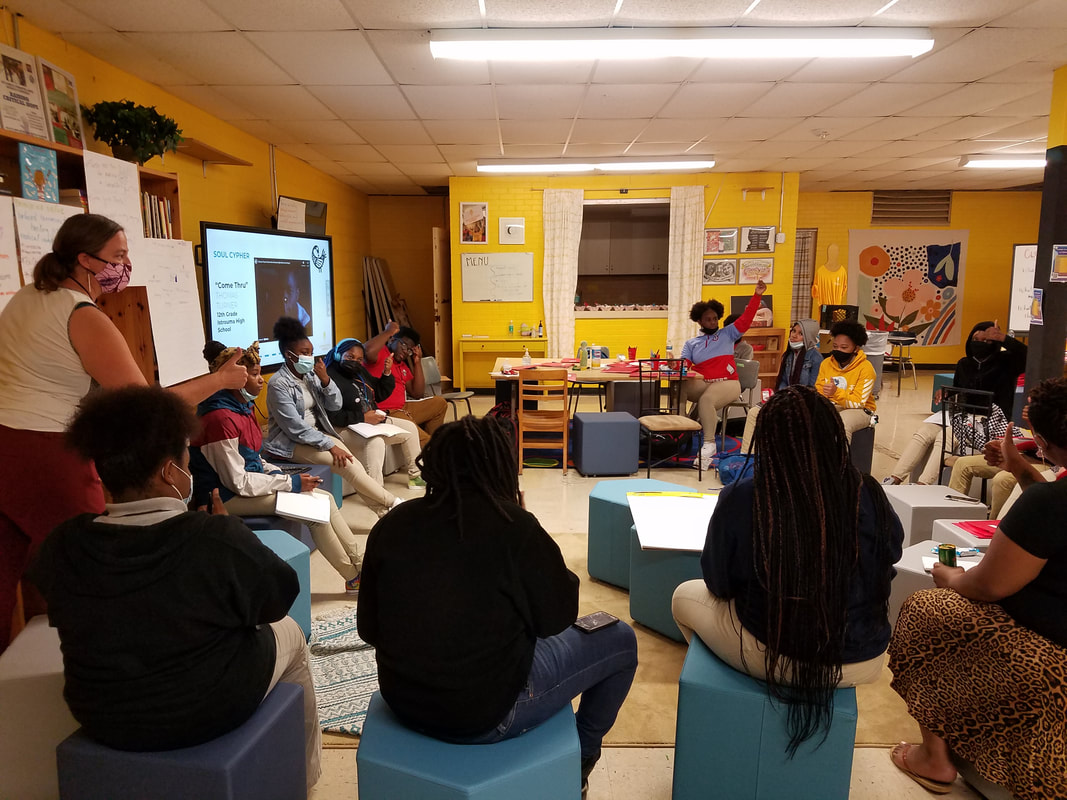
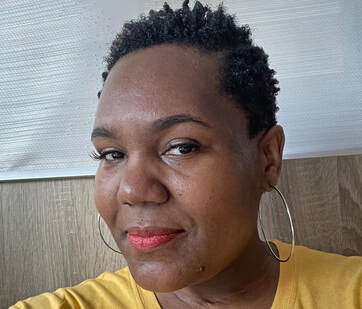
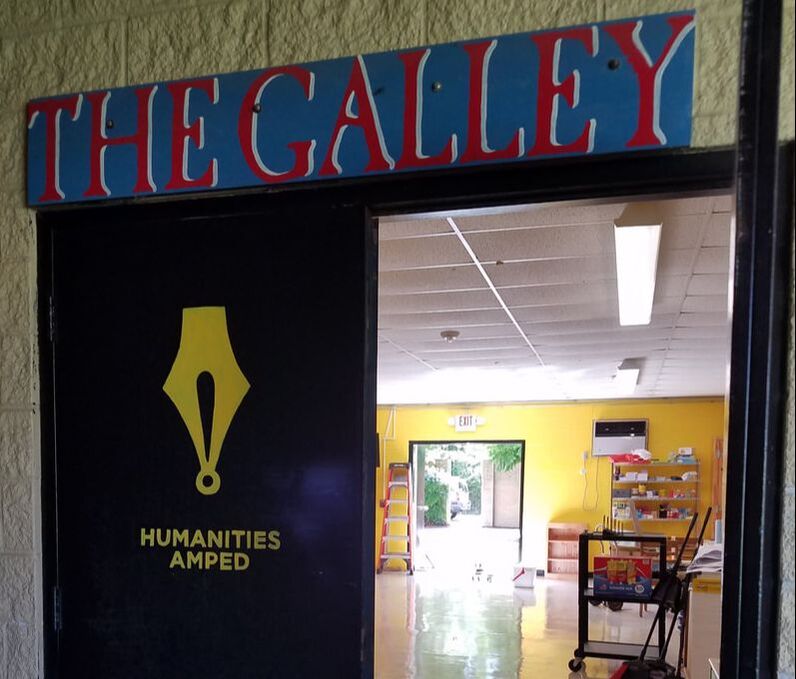
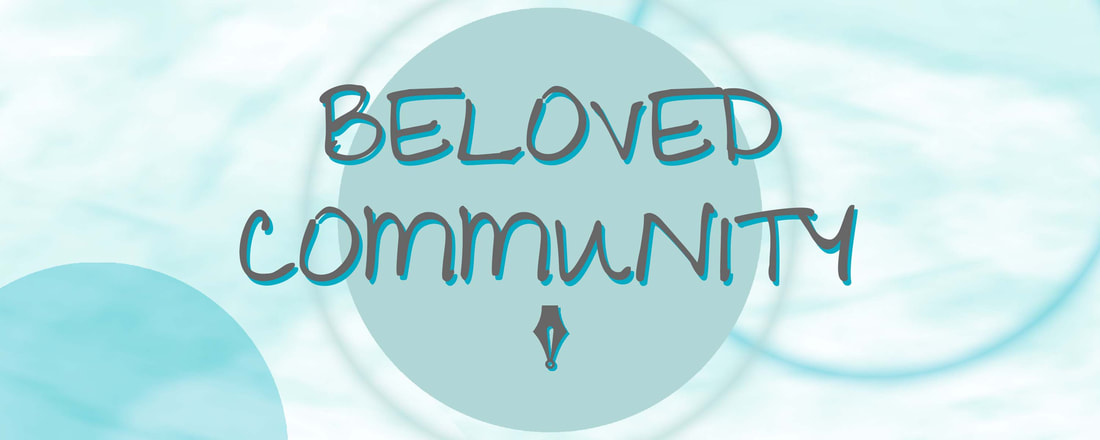
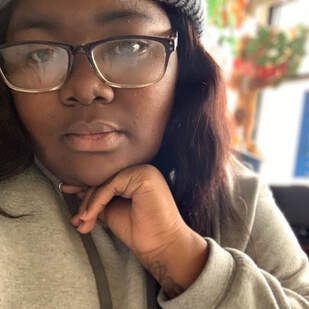
 RSS Feed
RSS Feed
